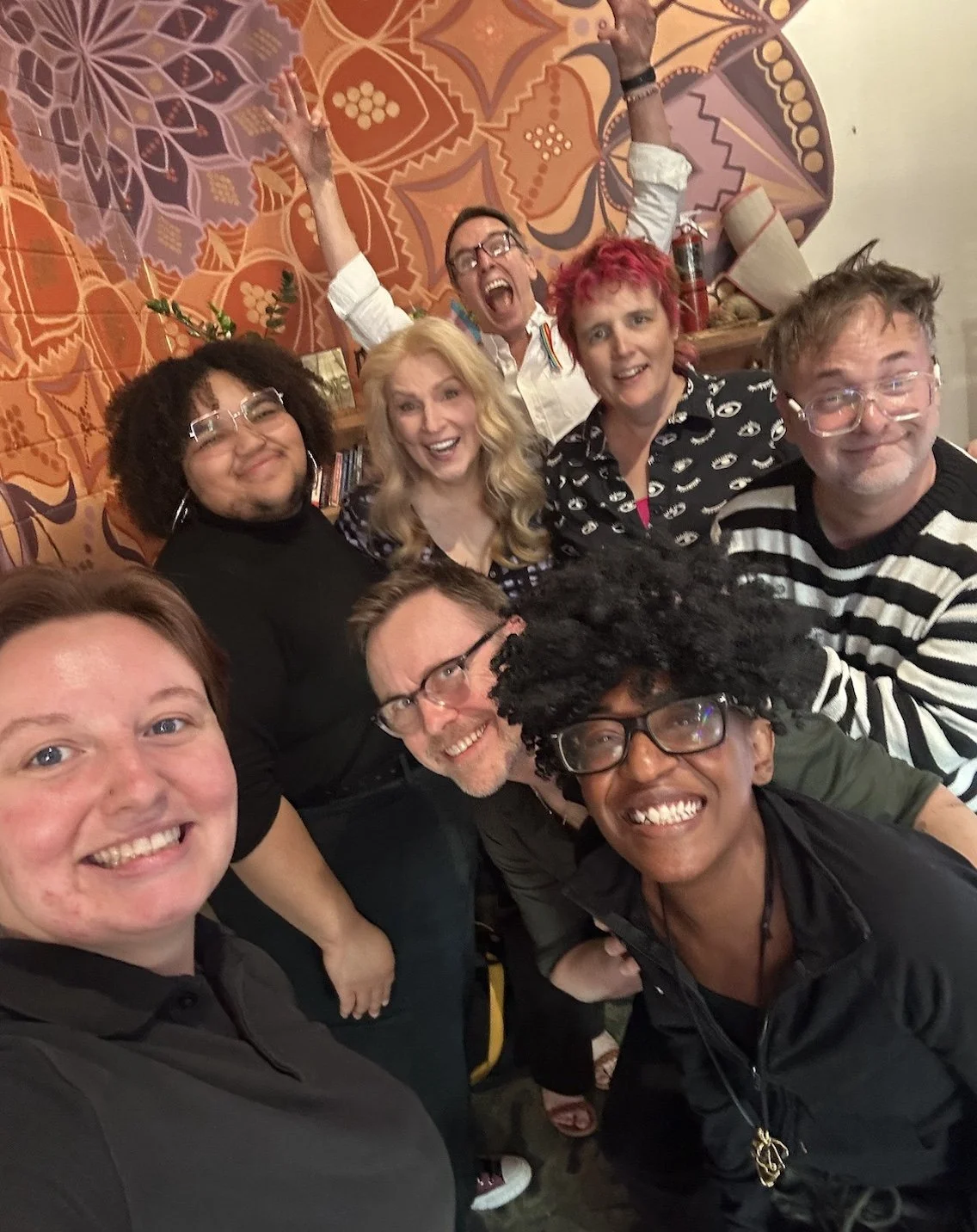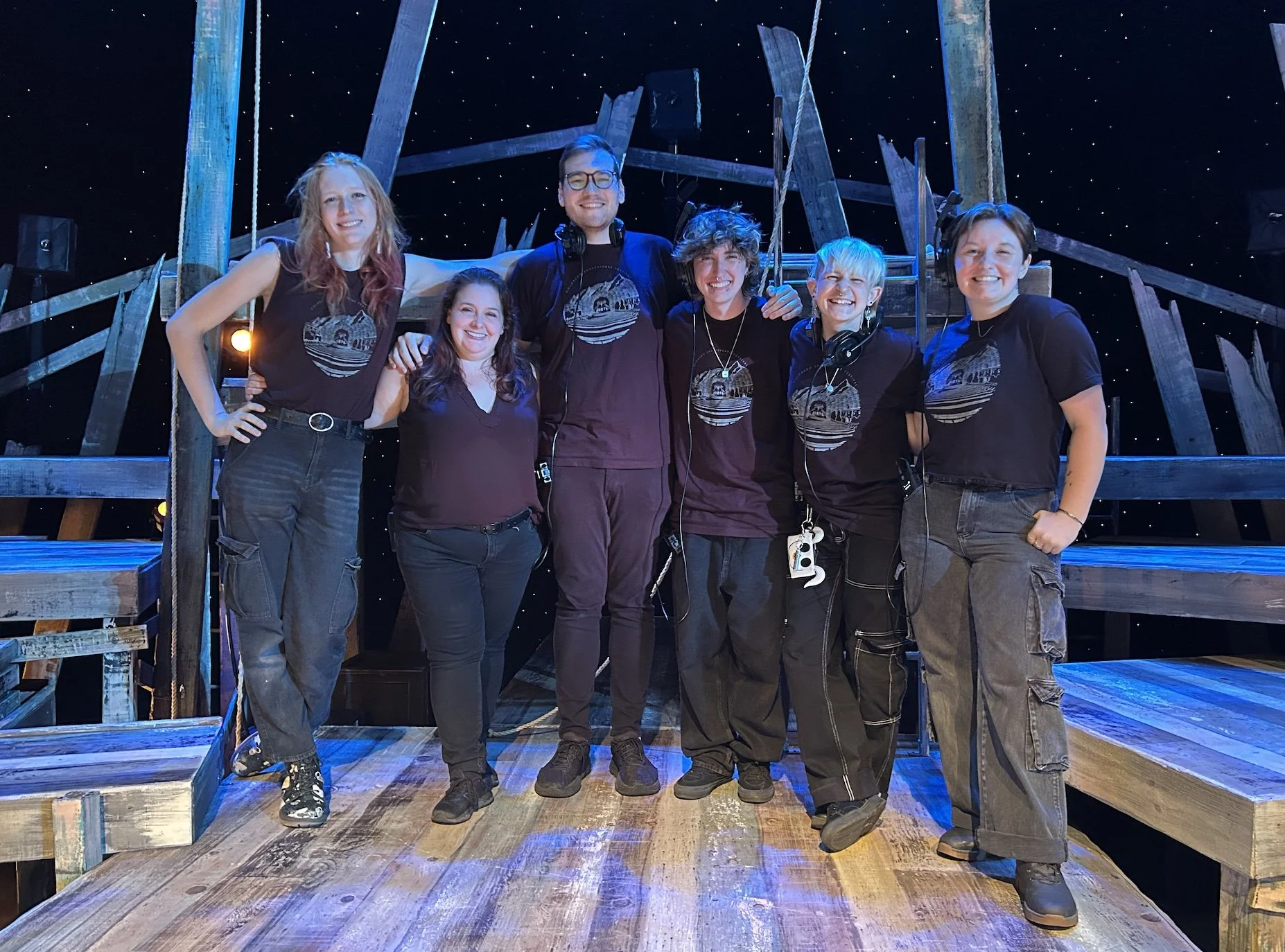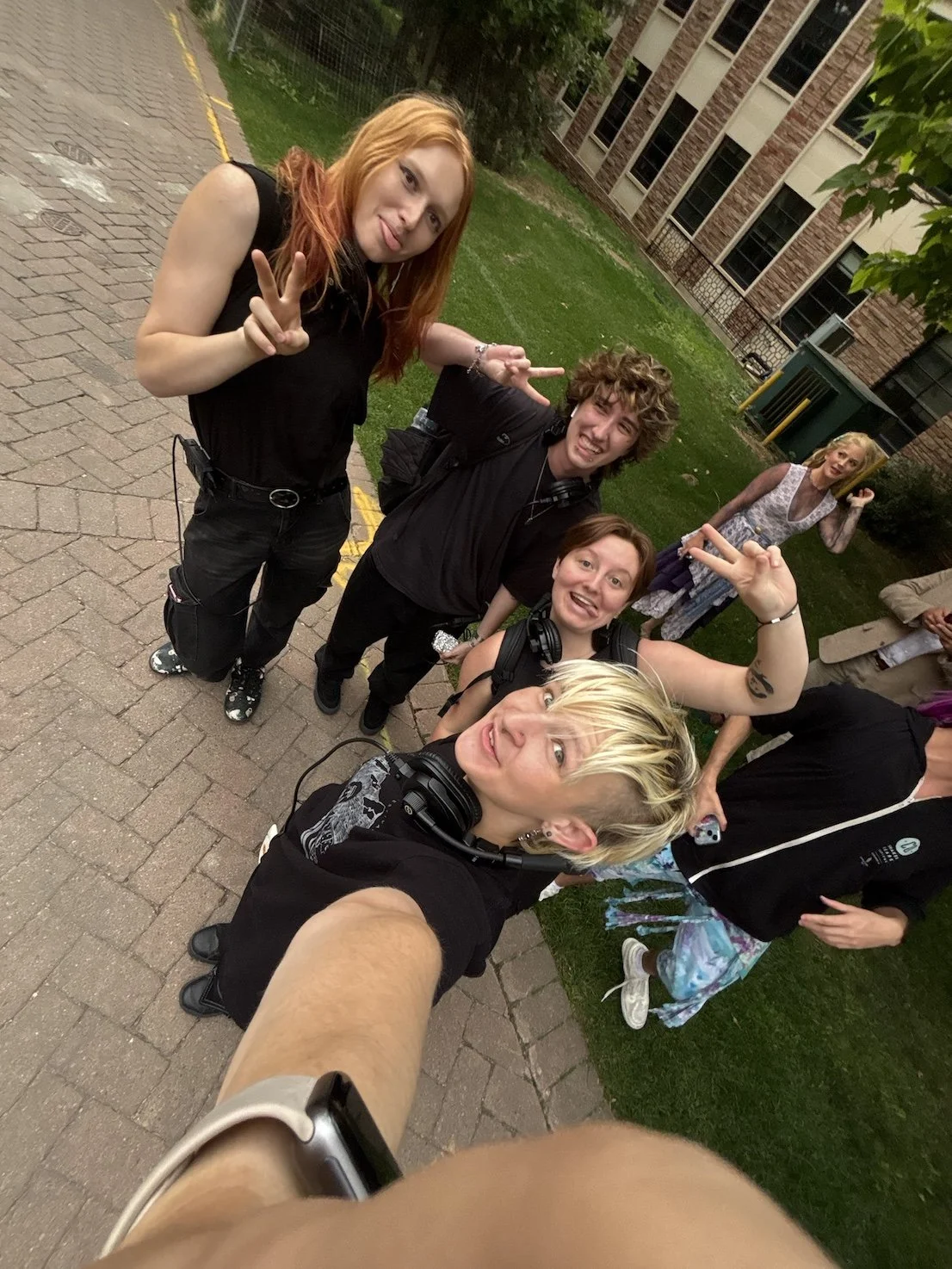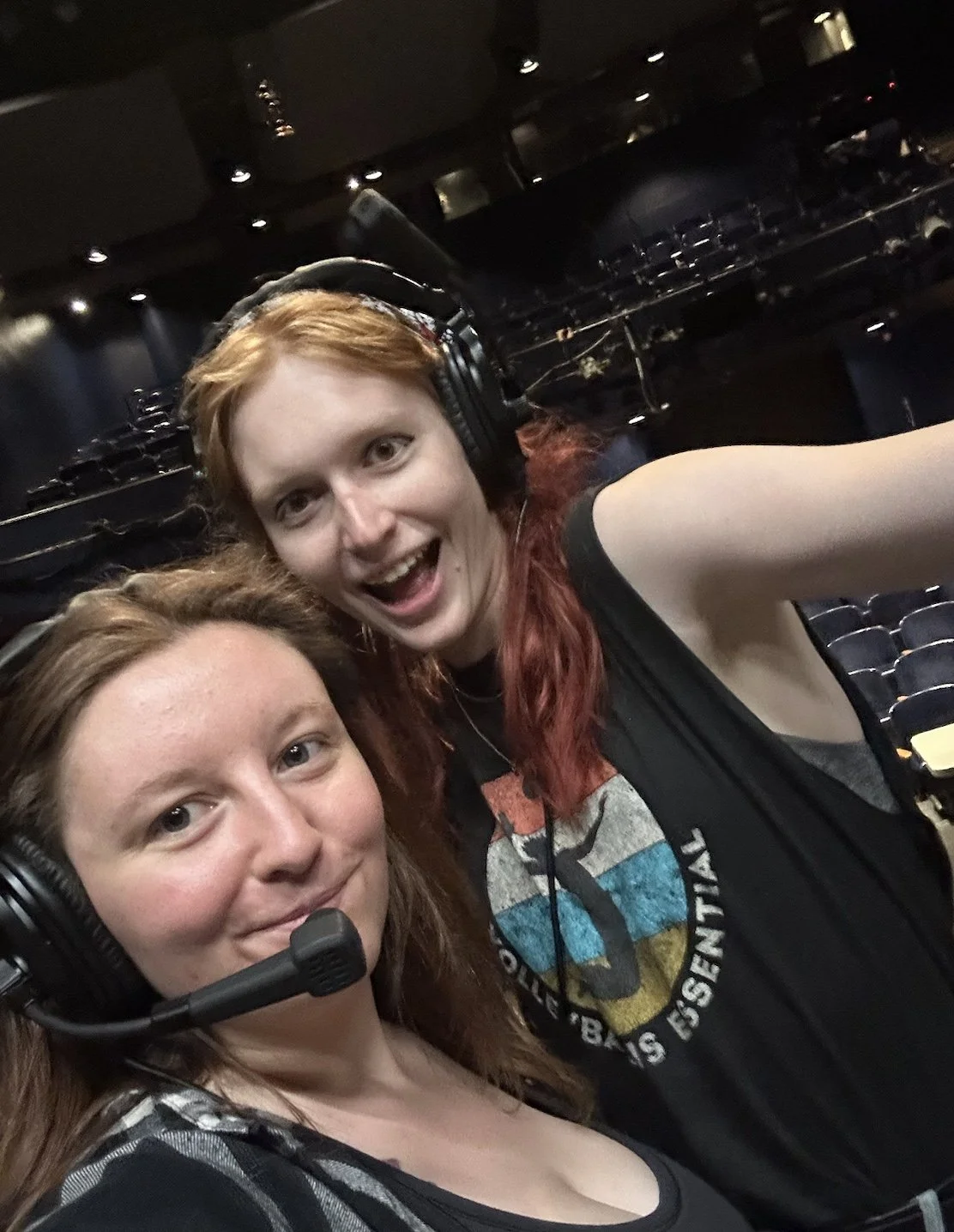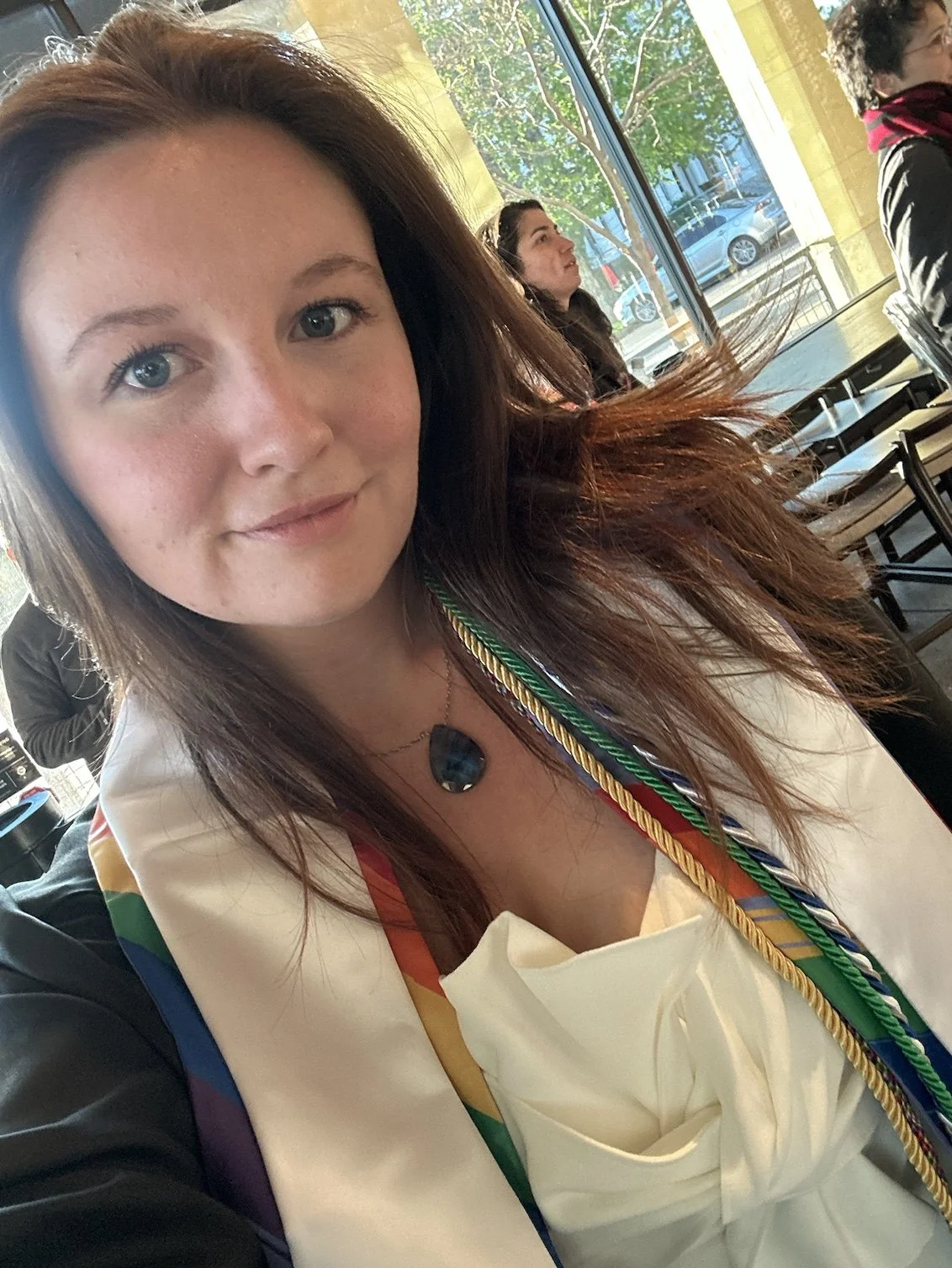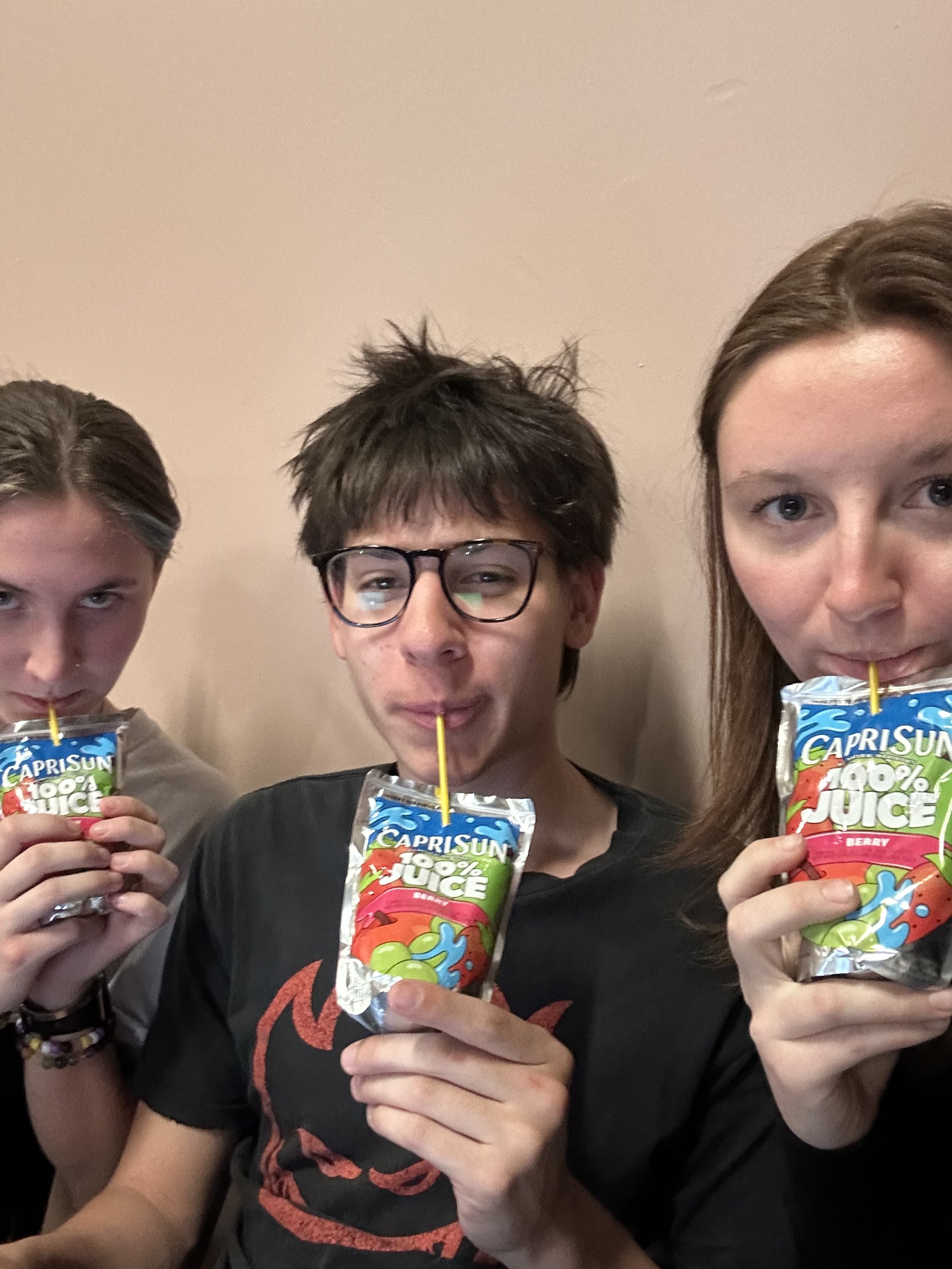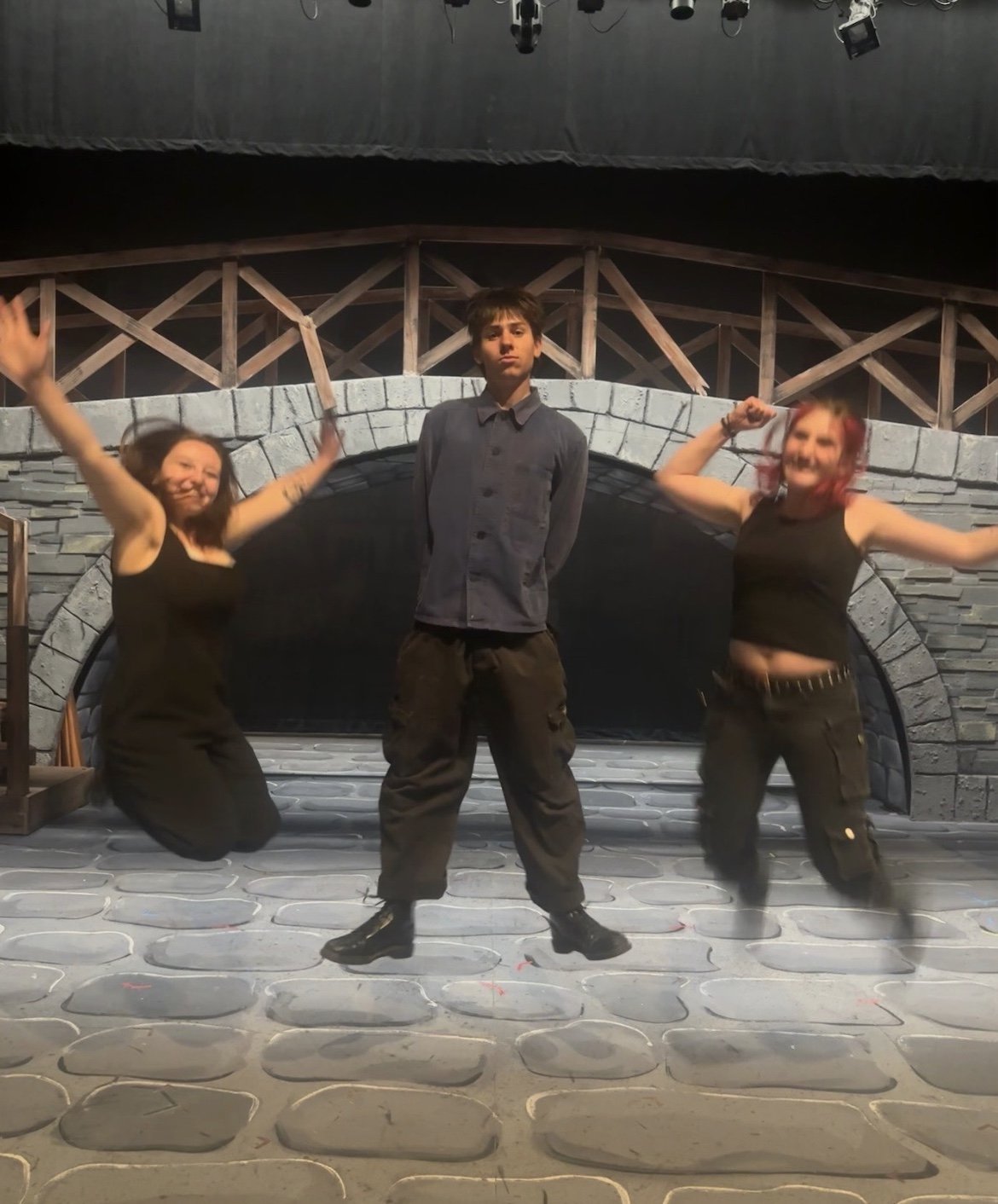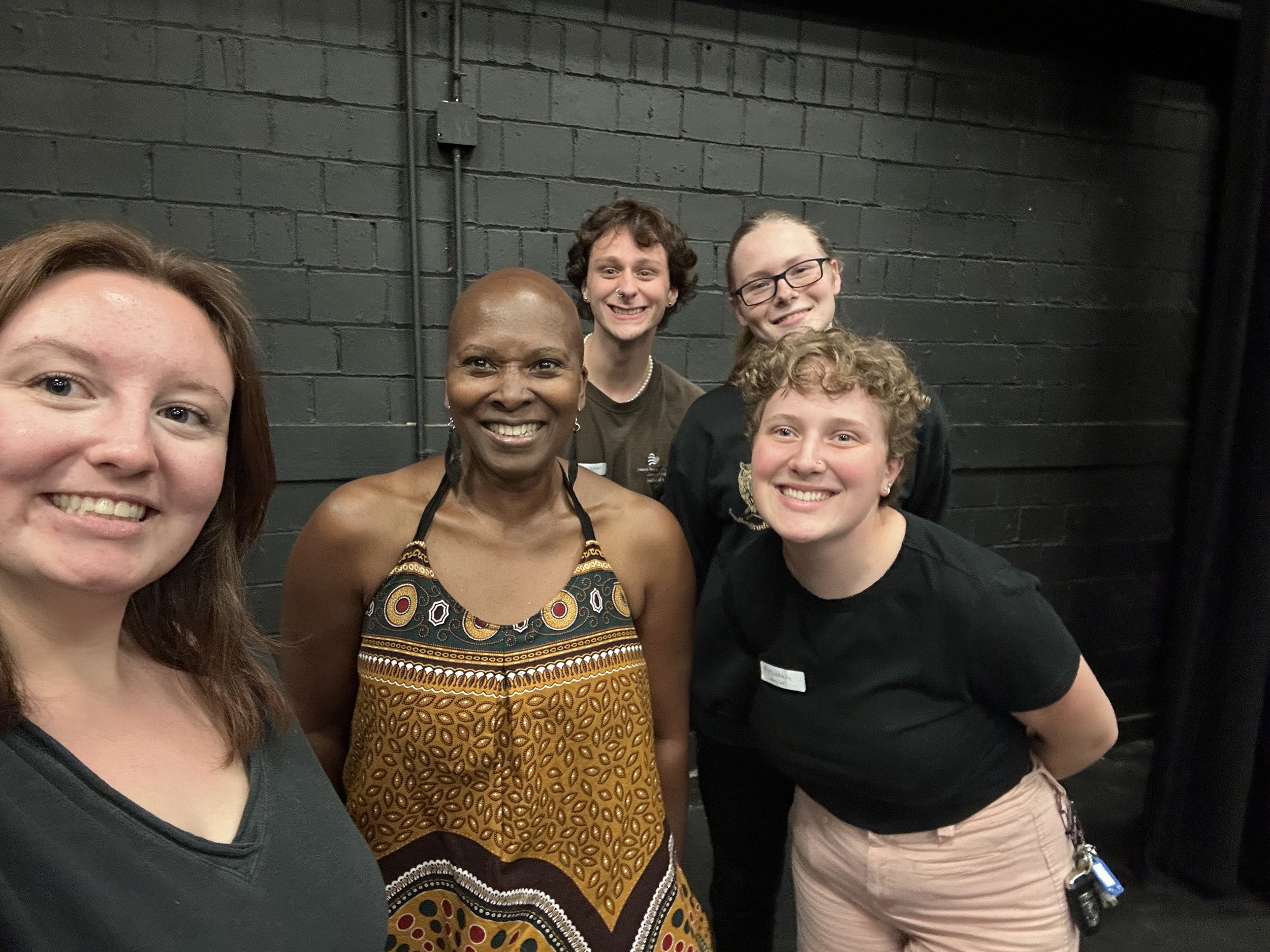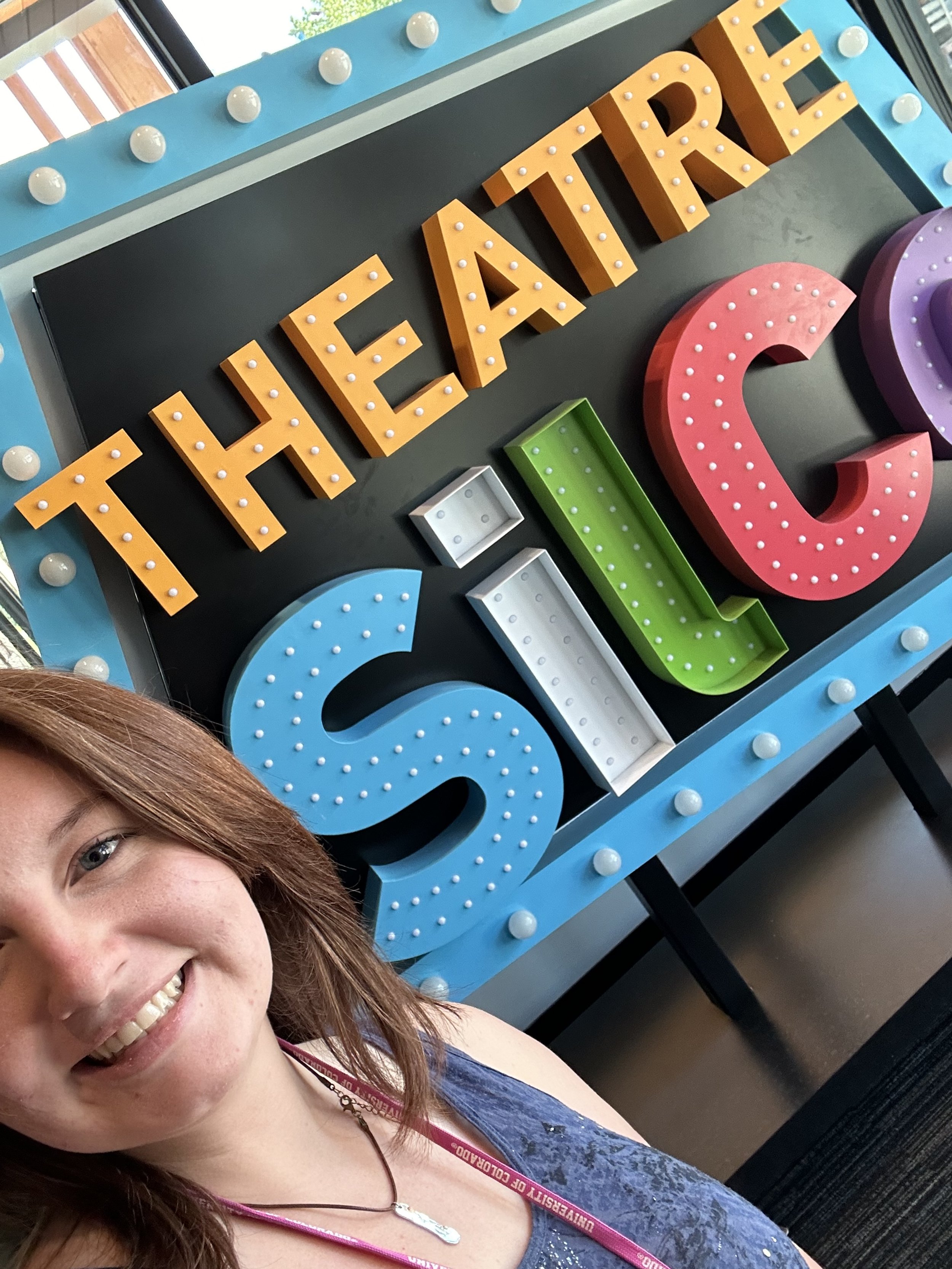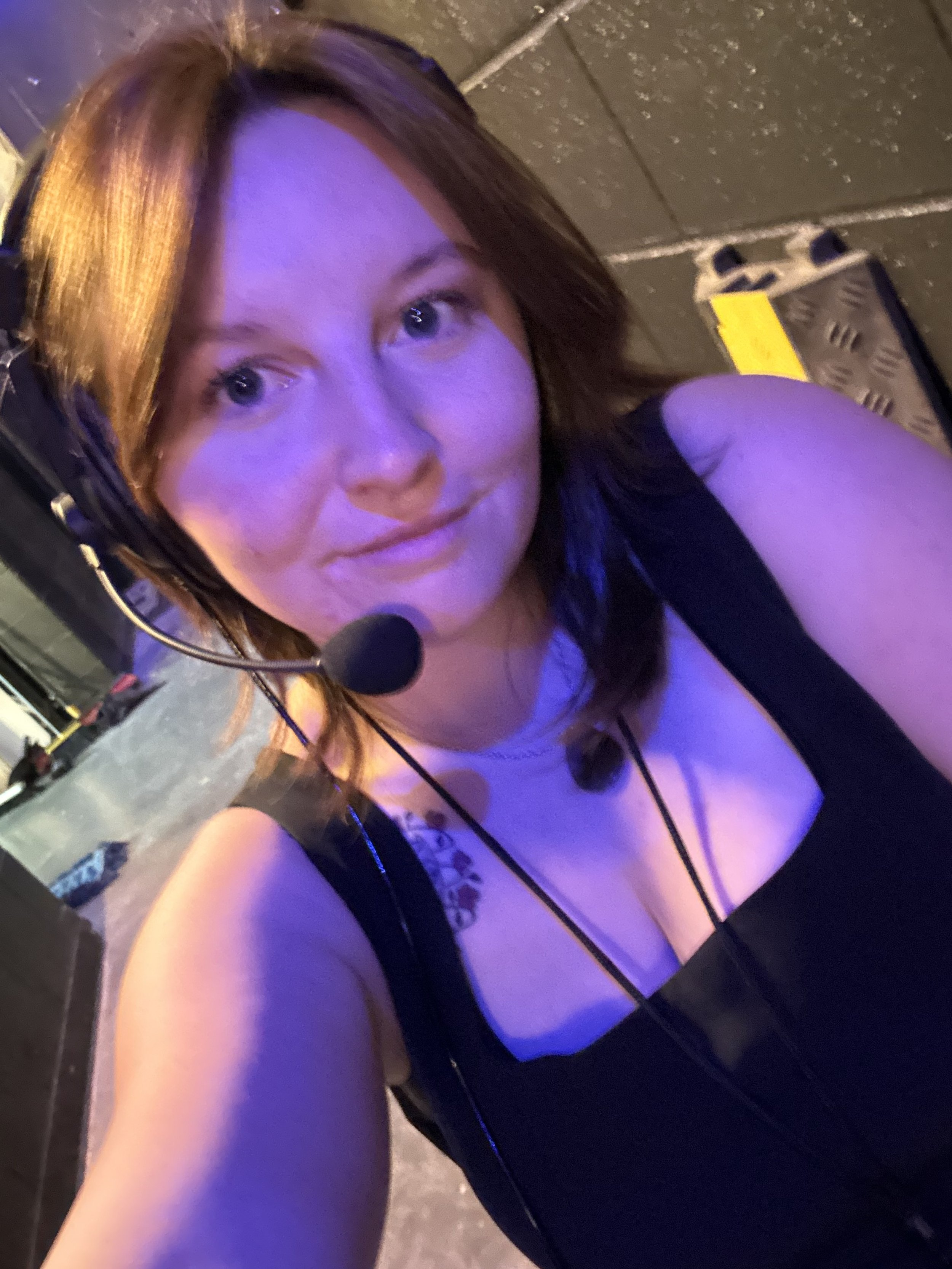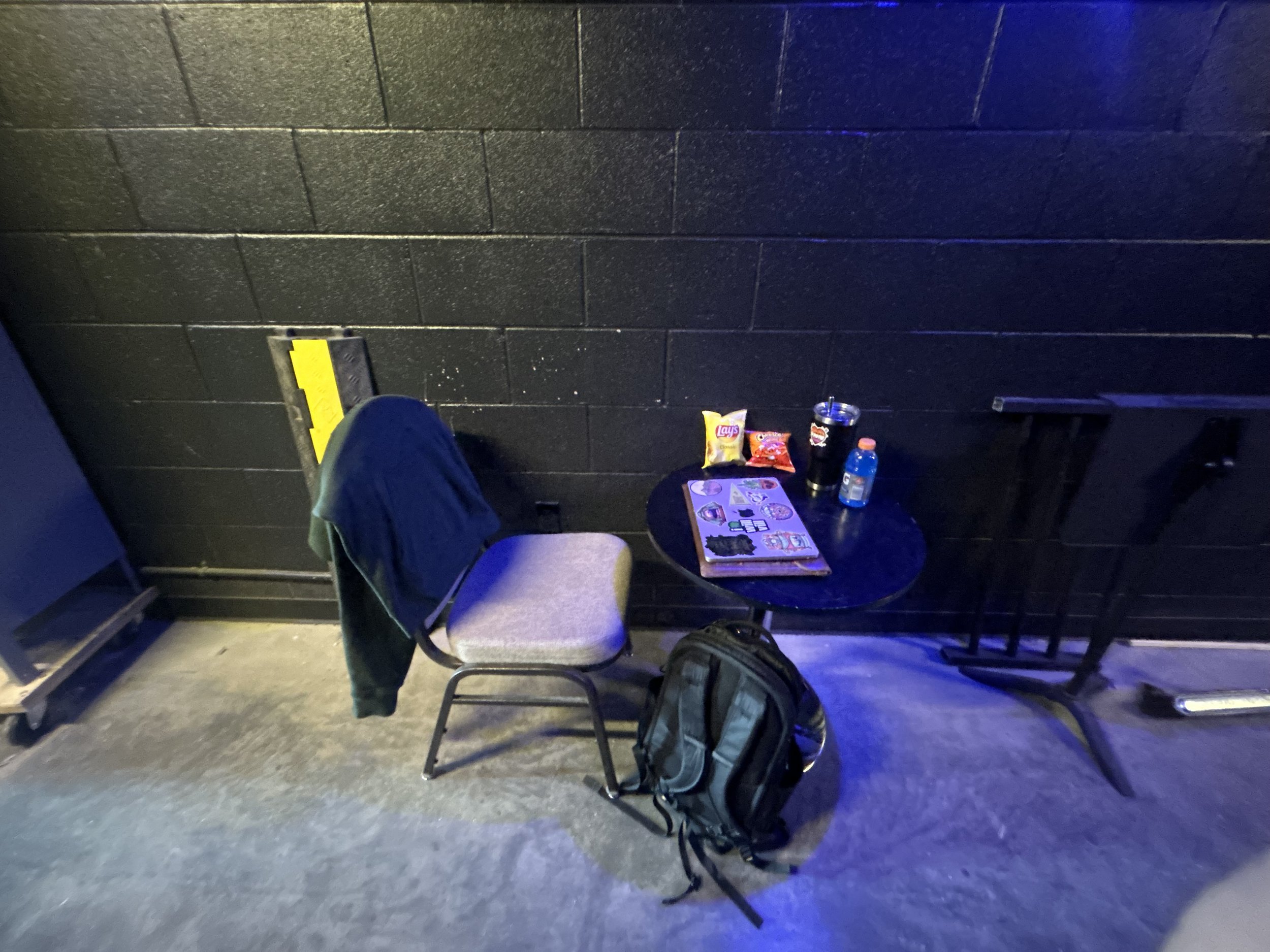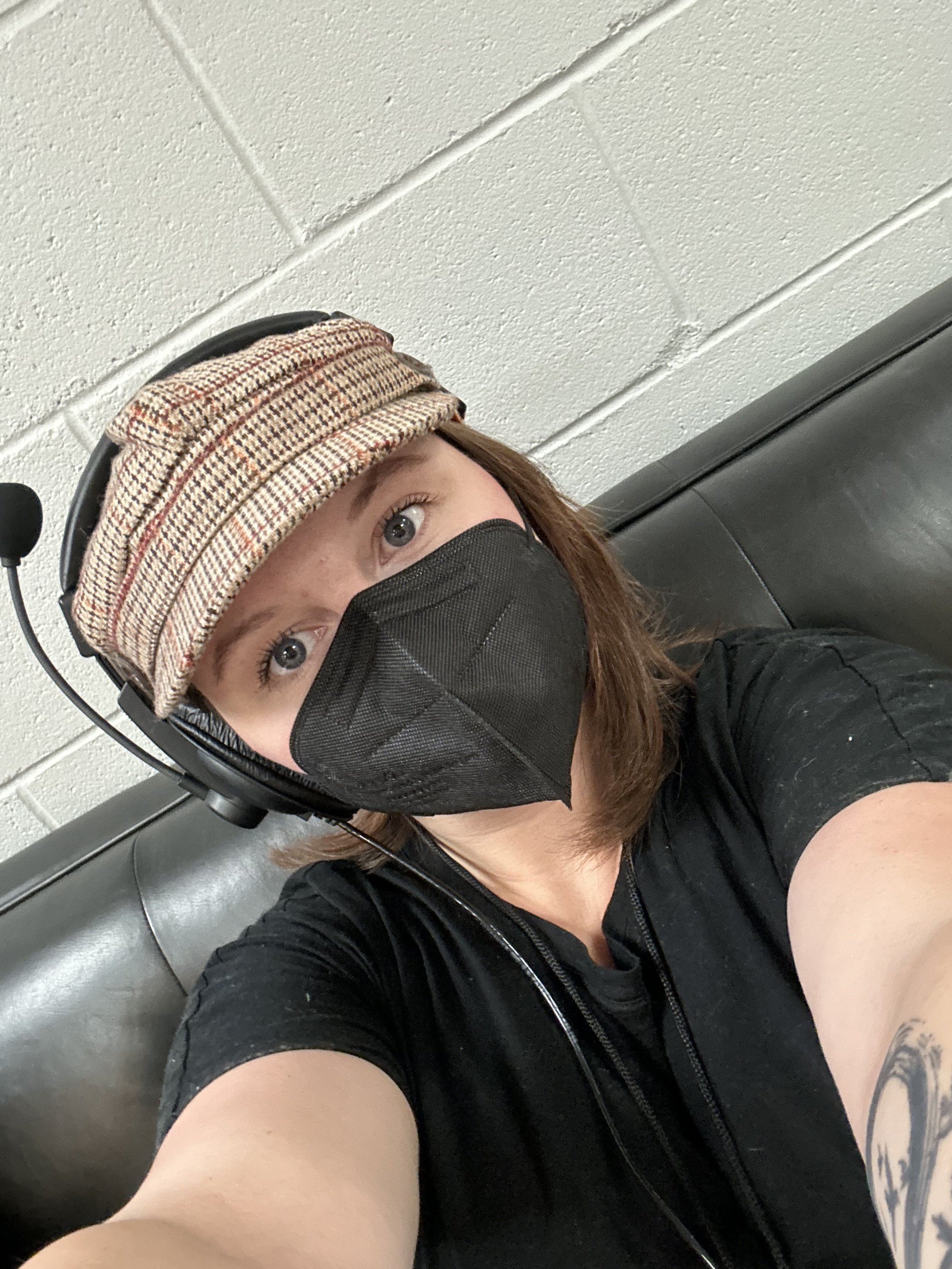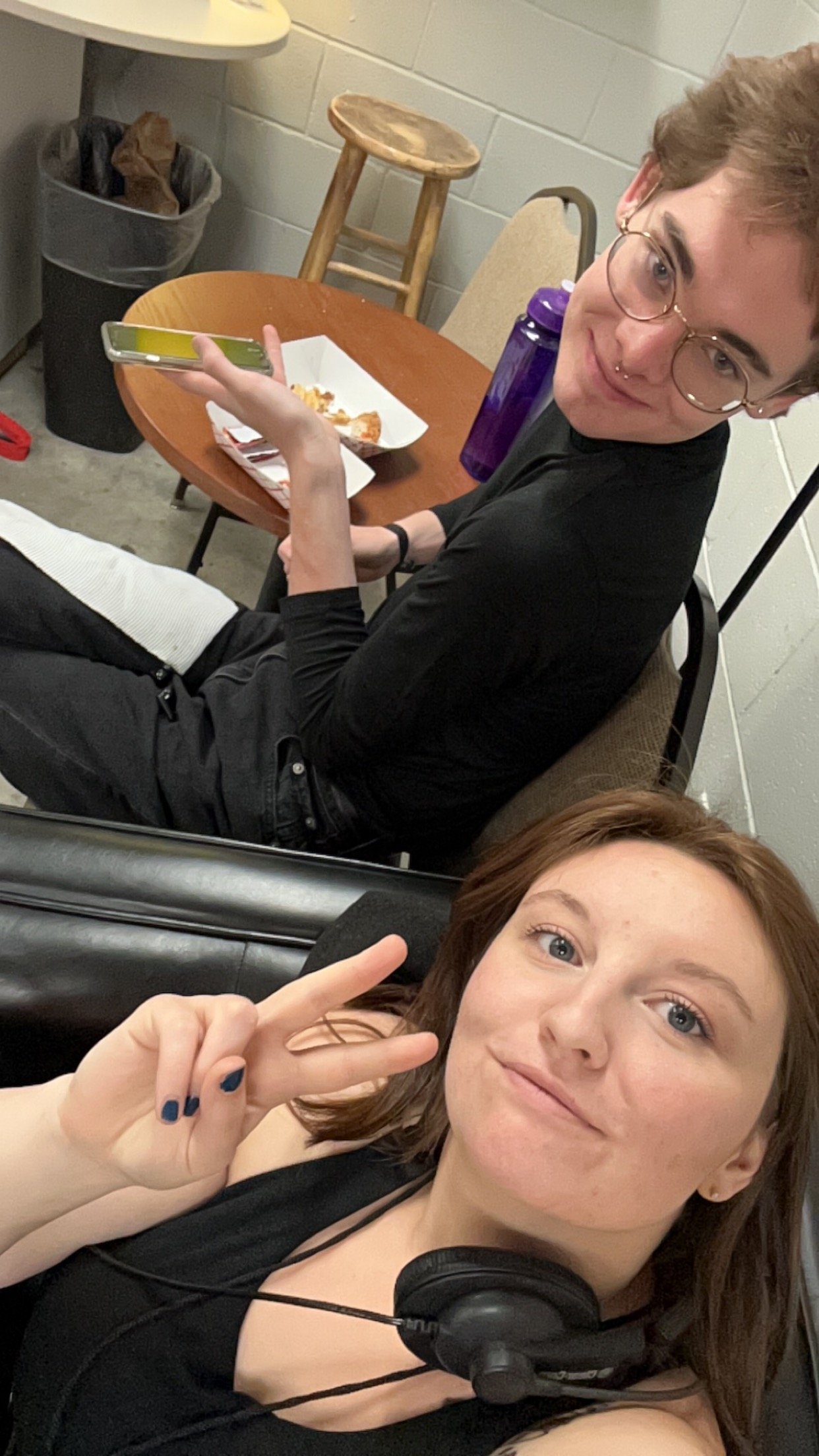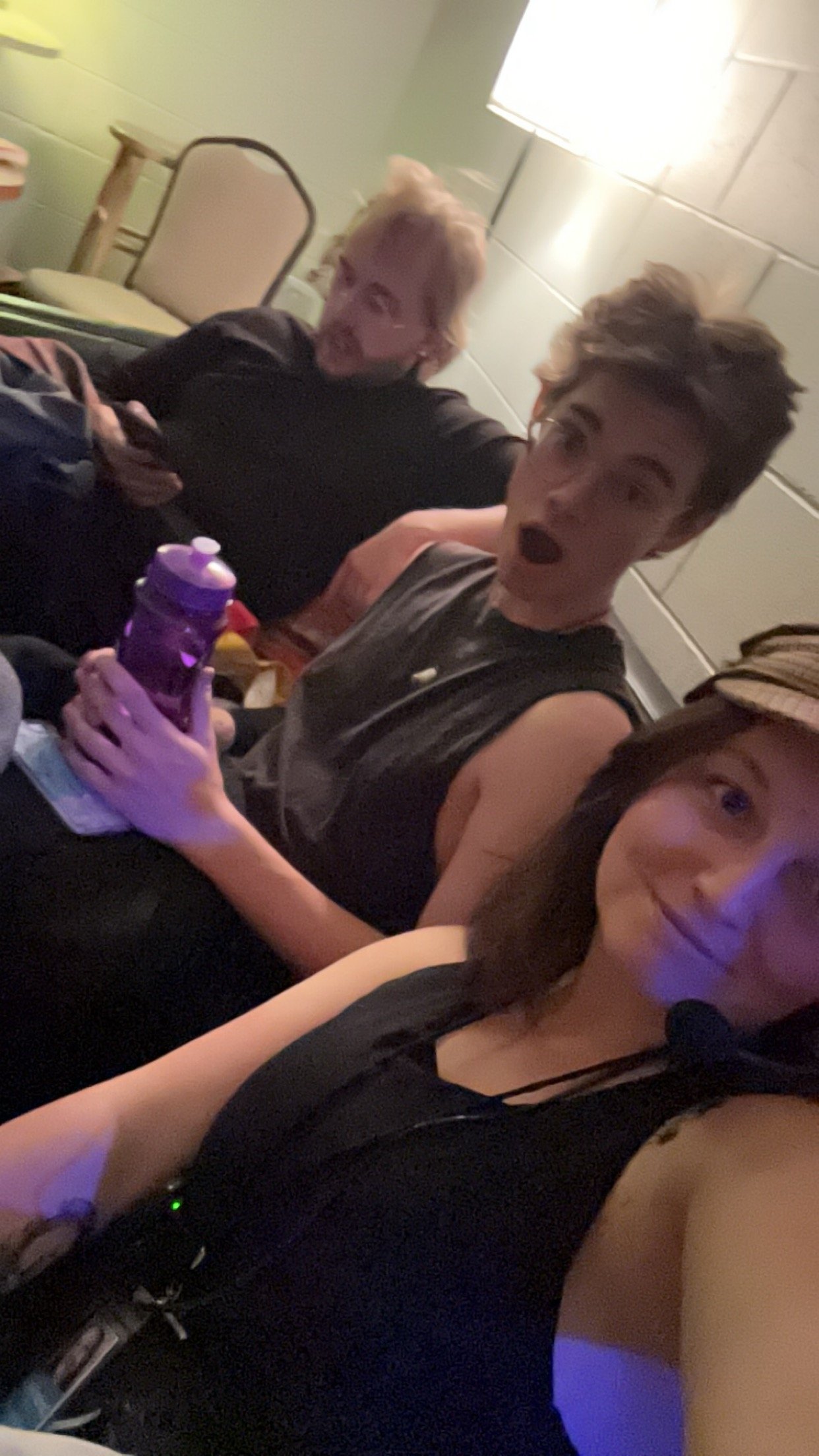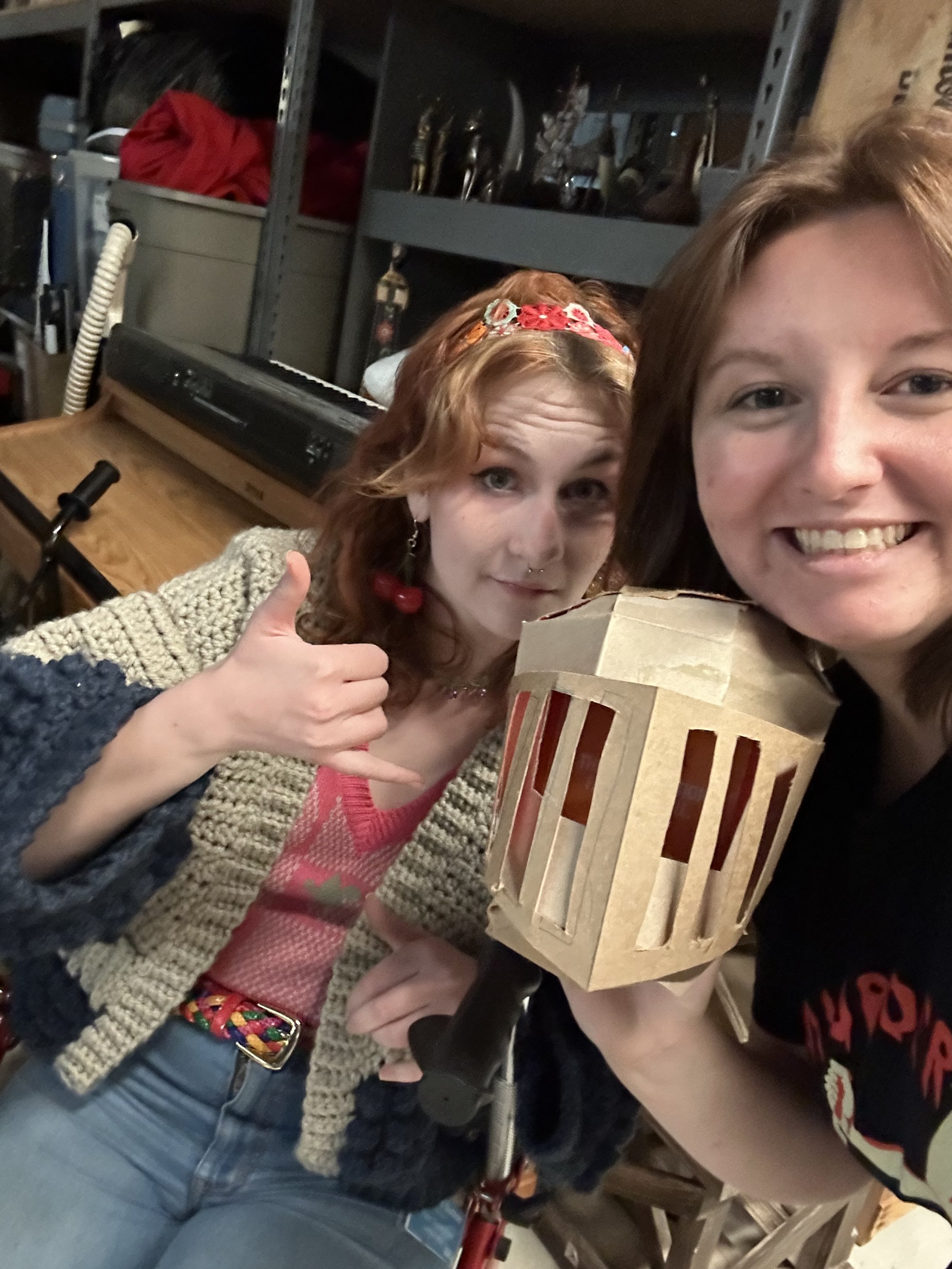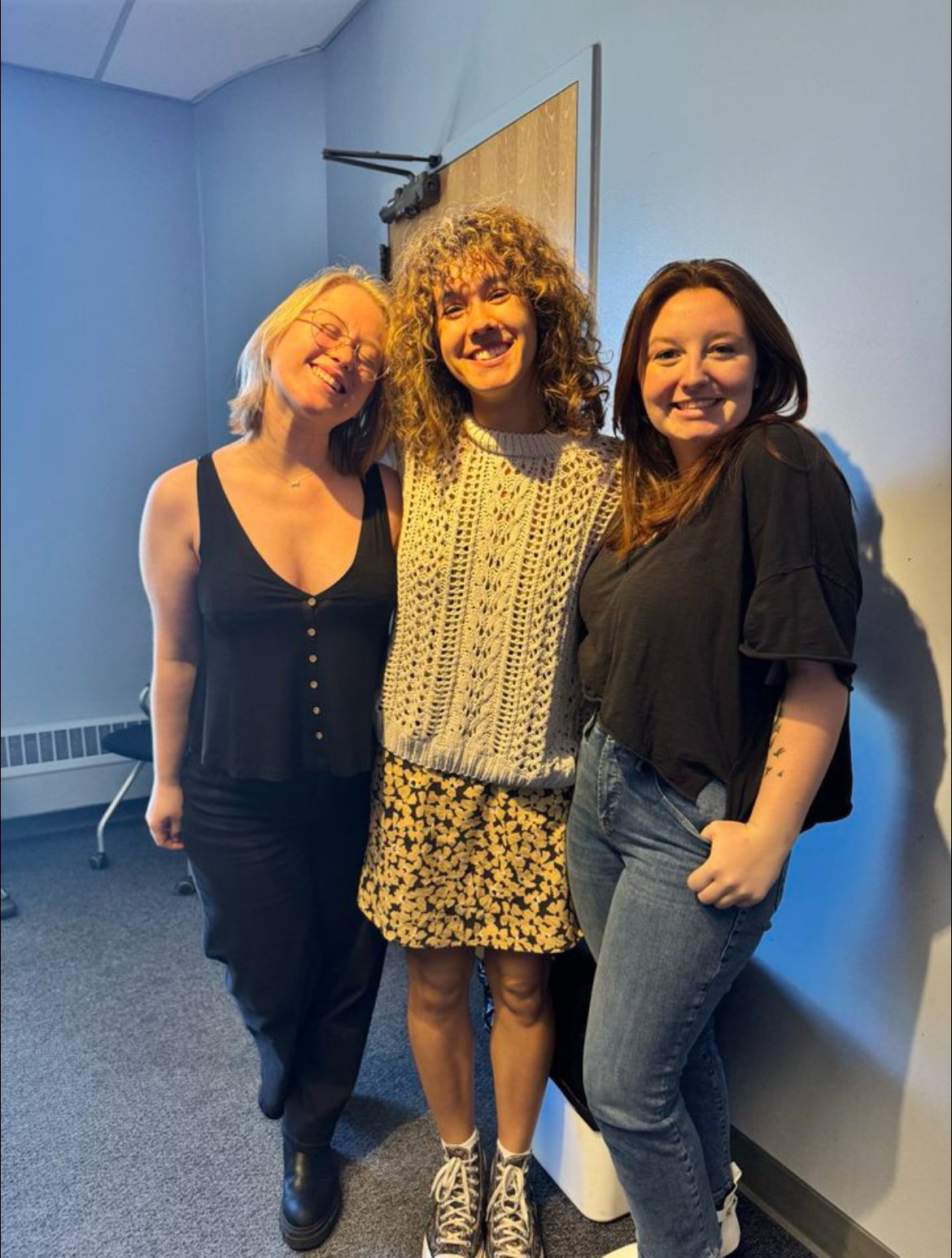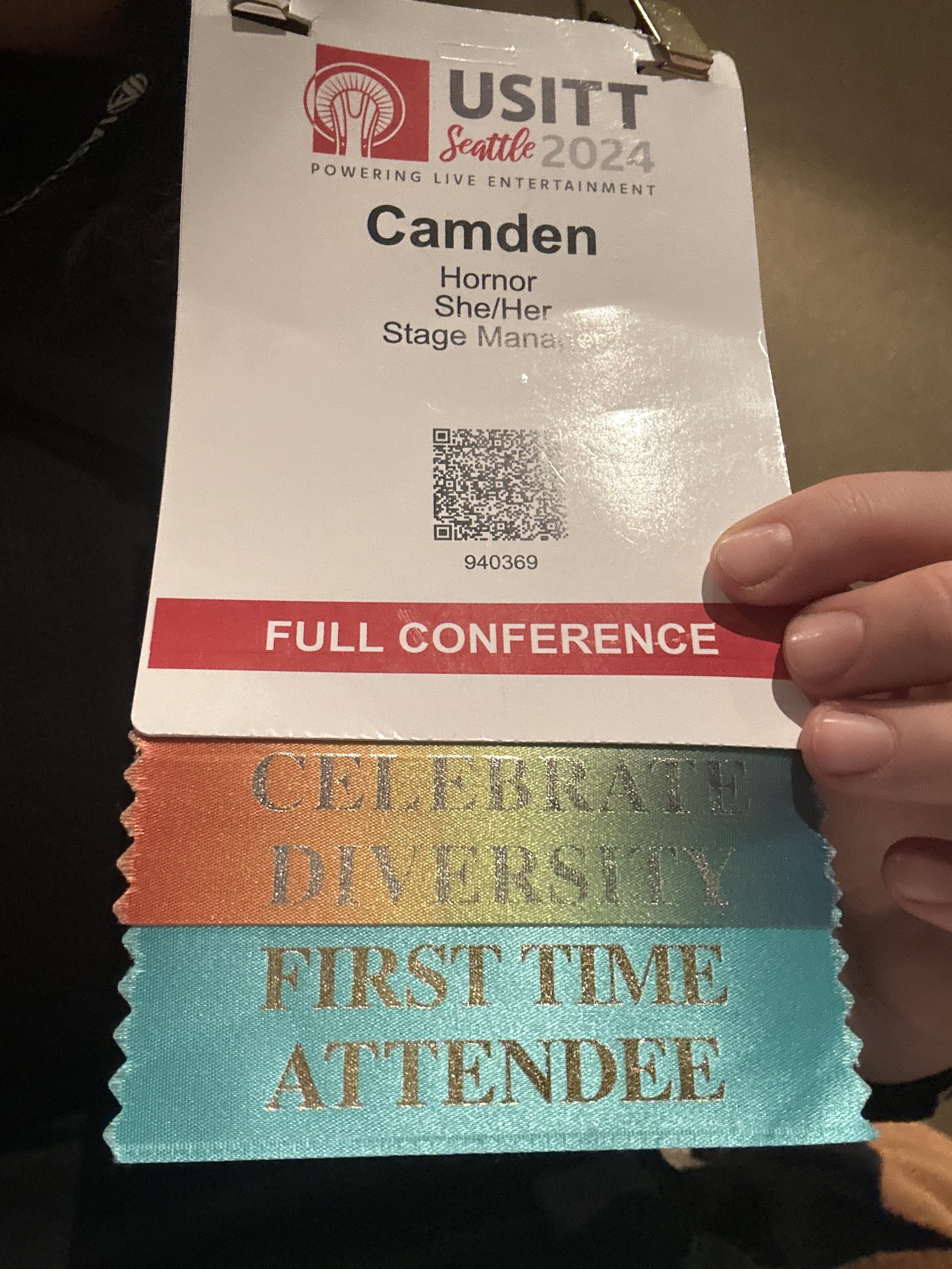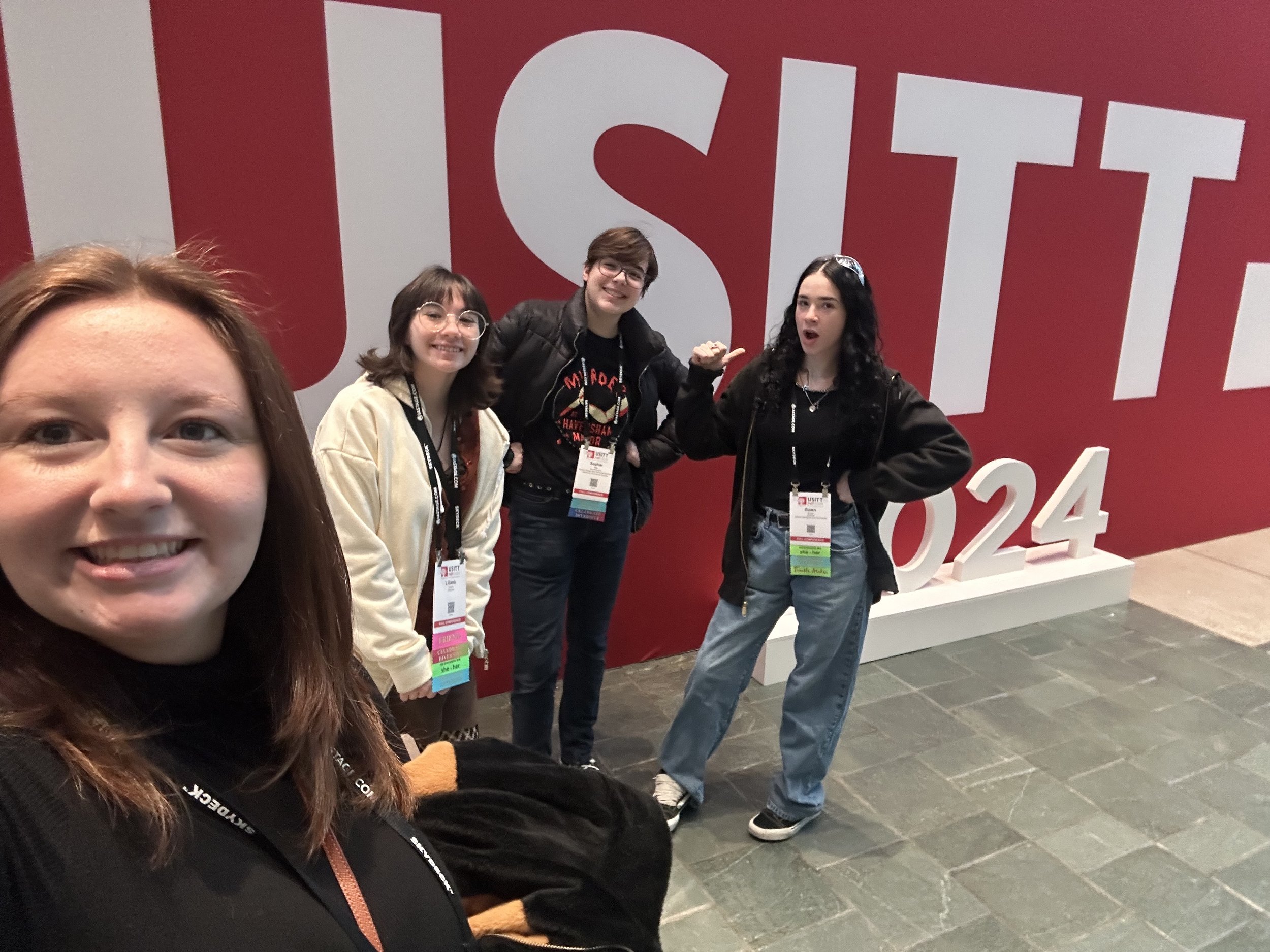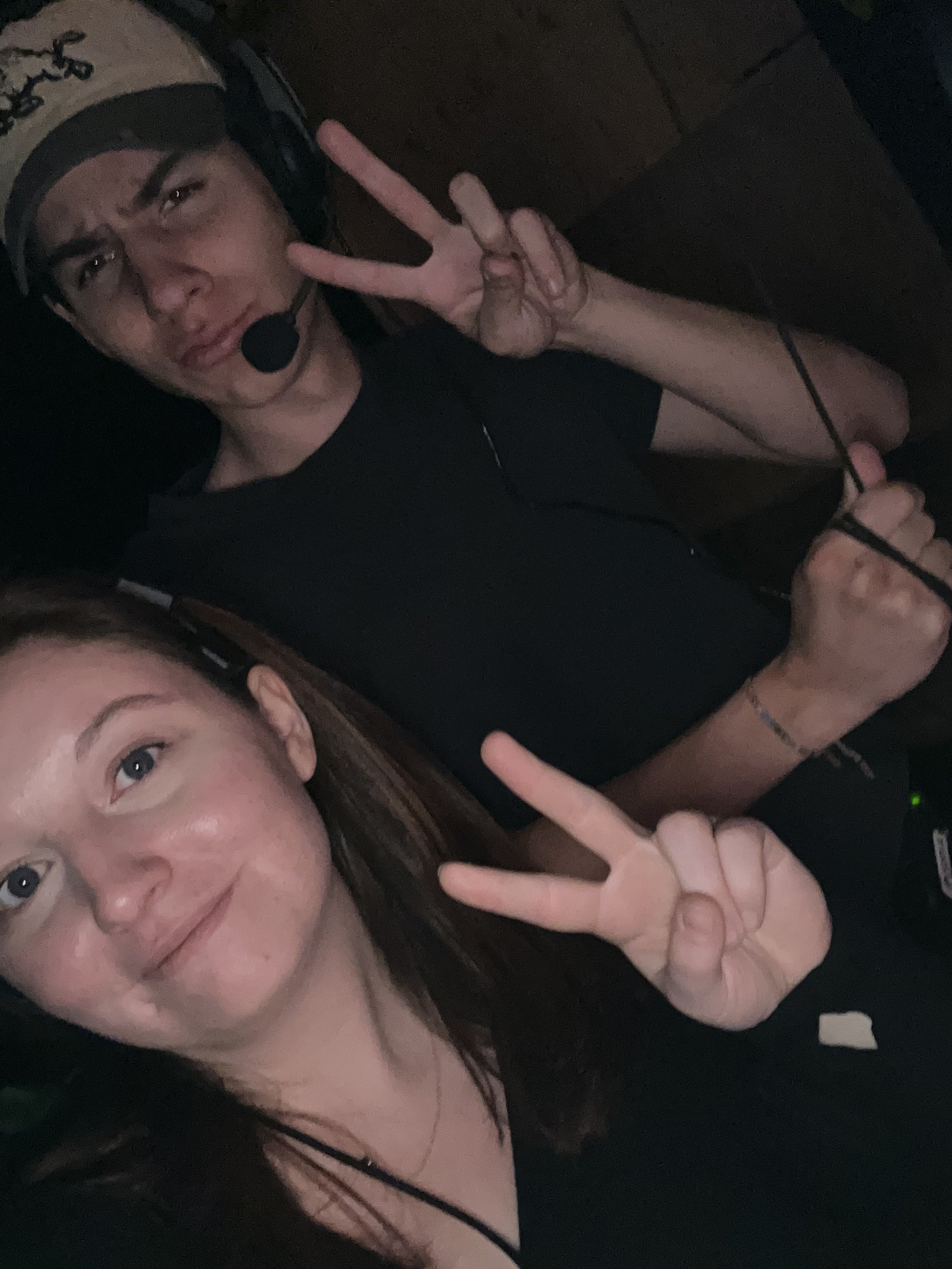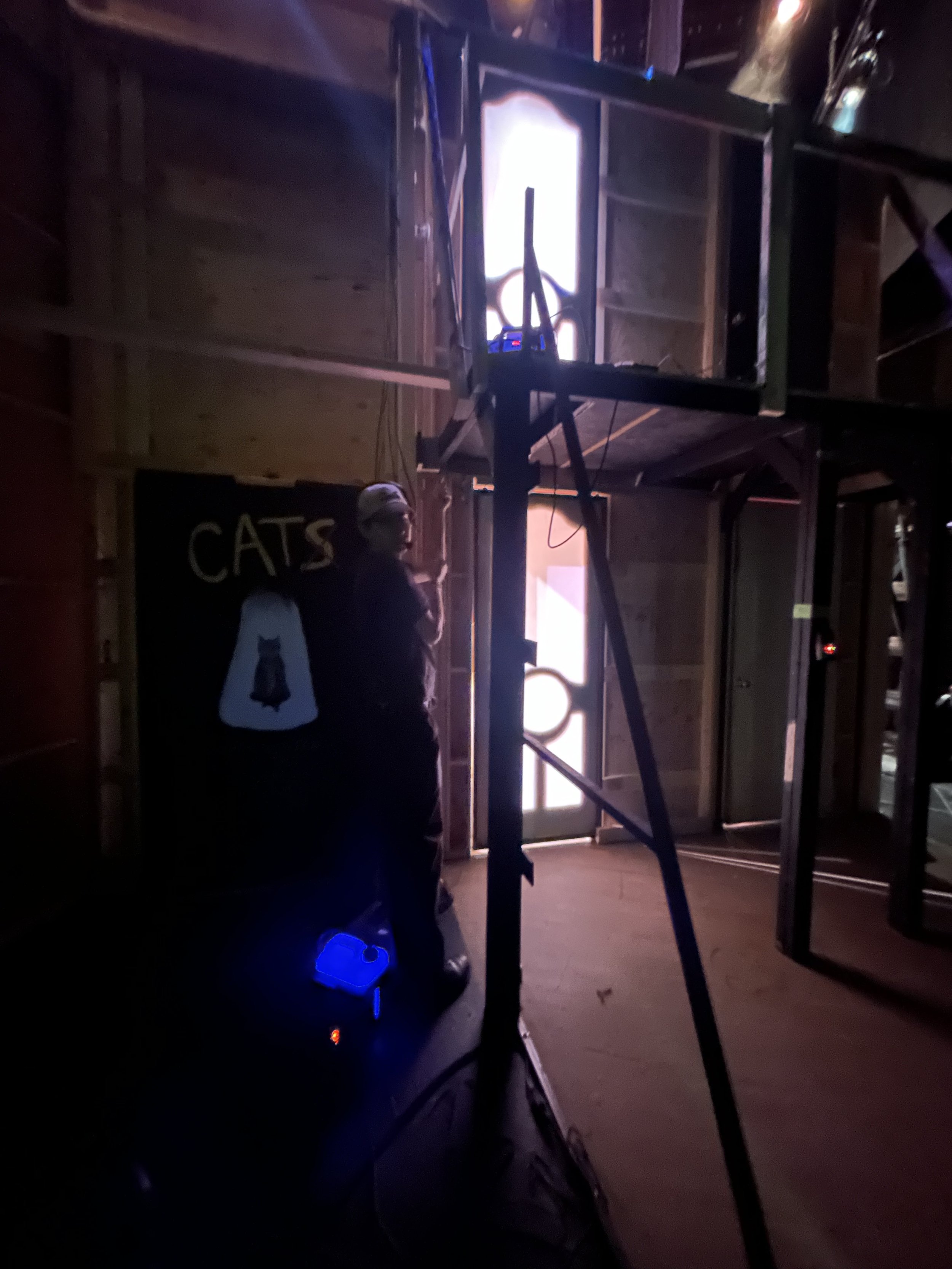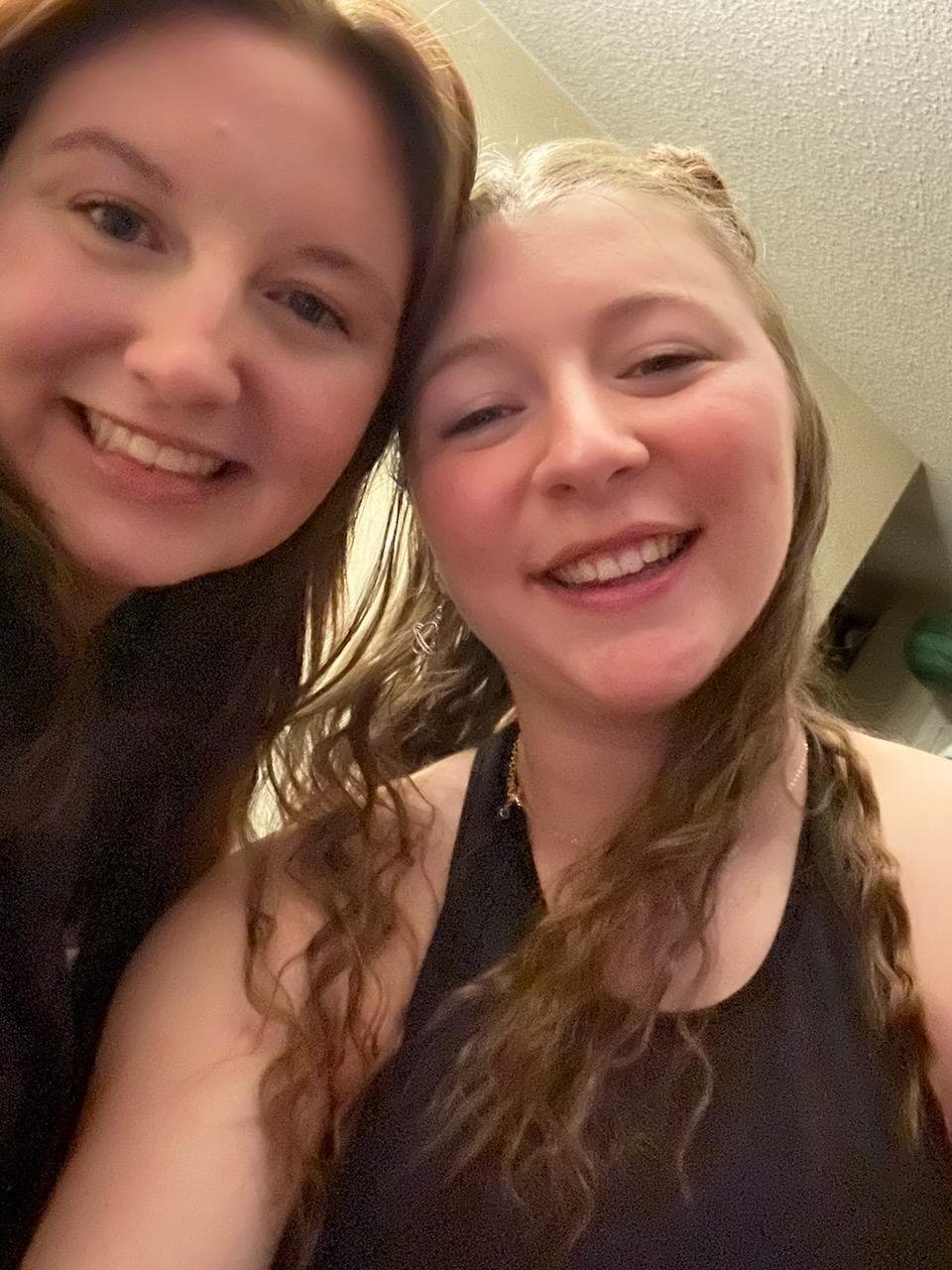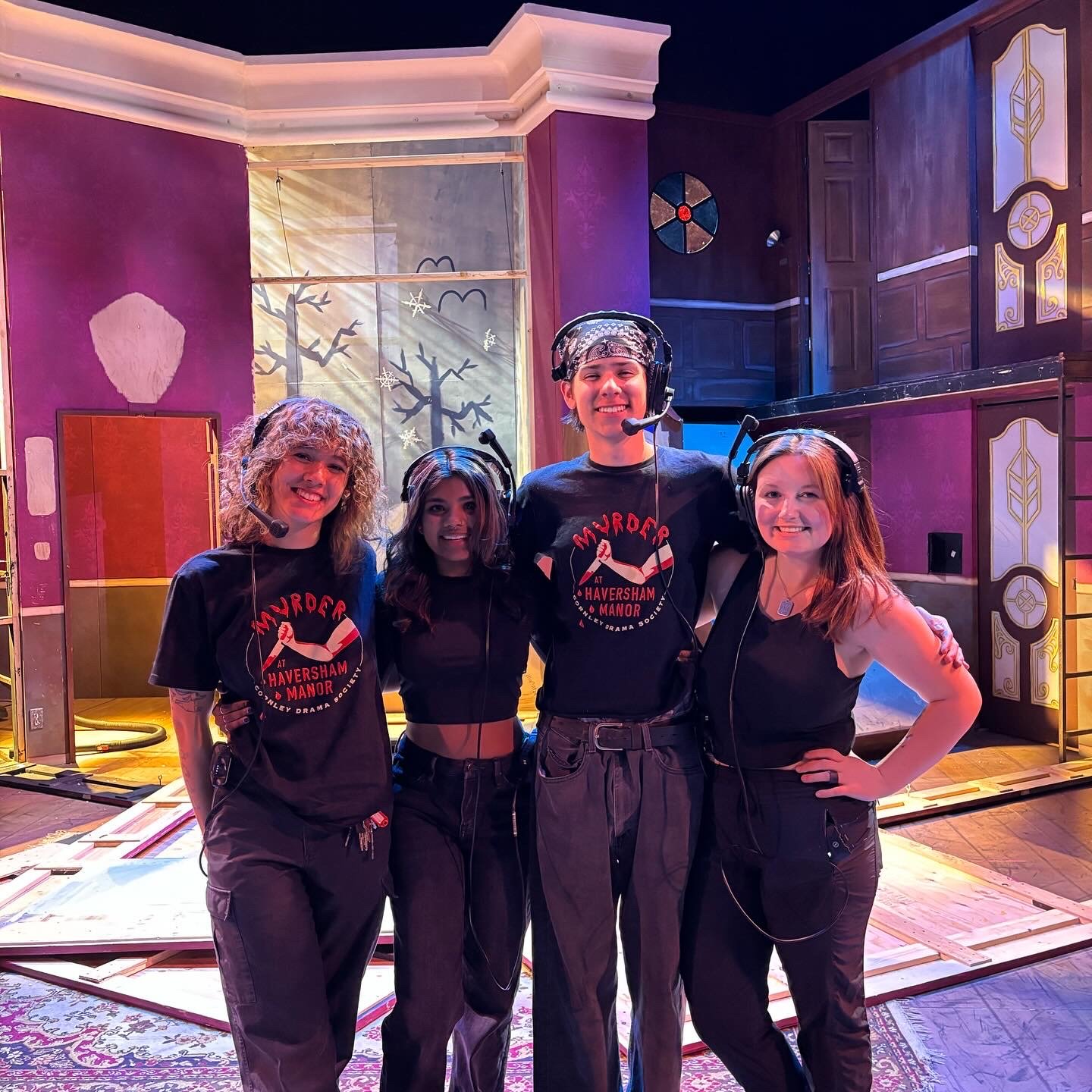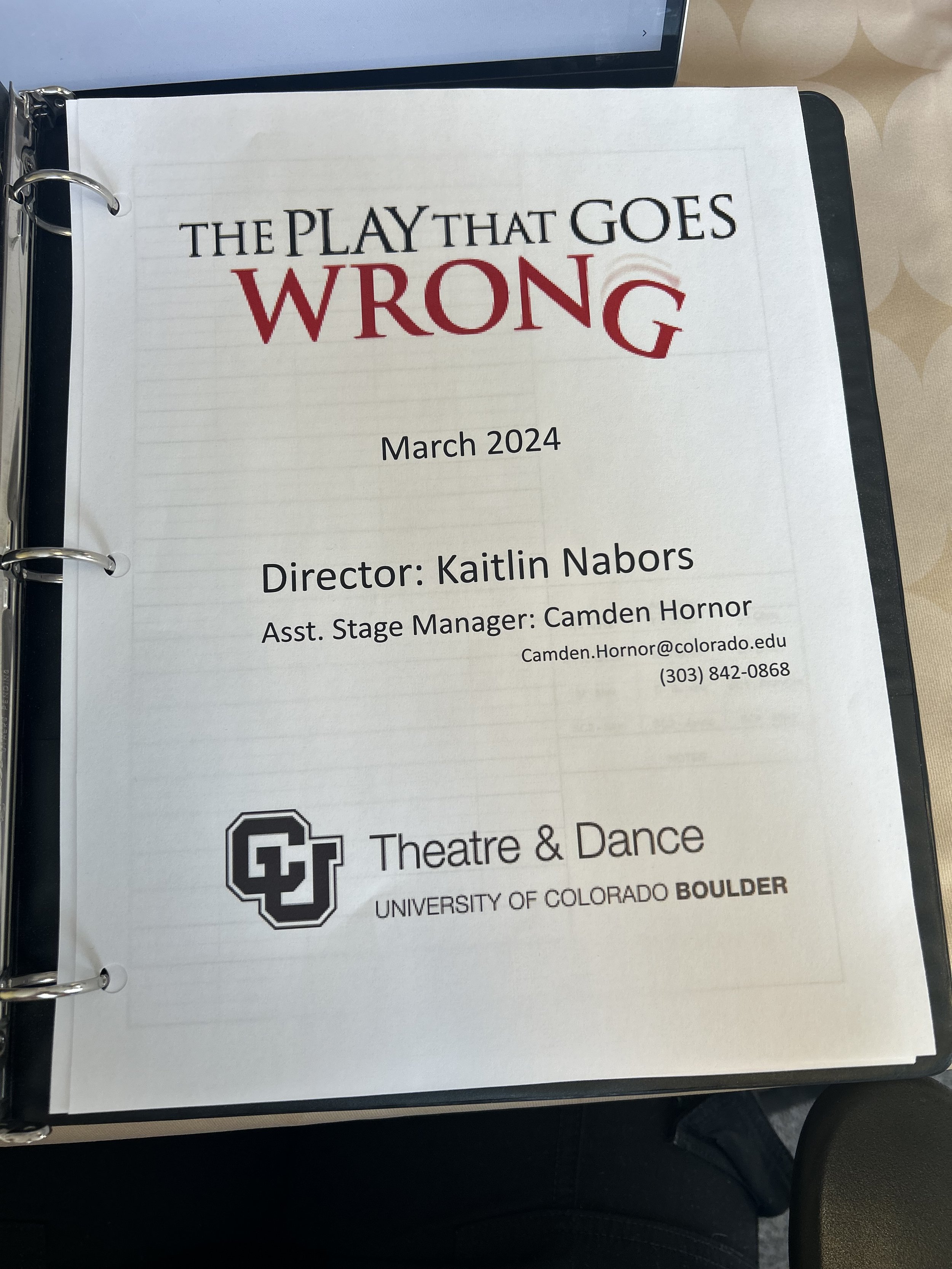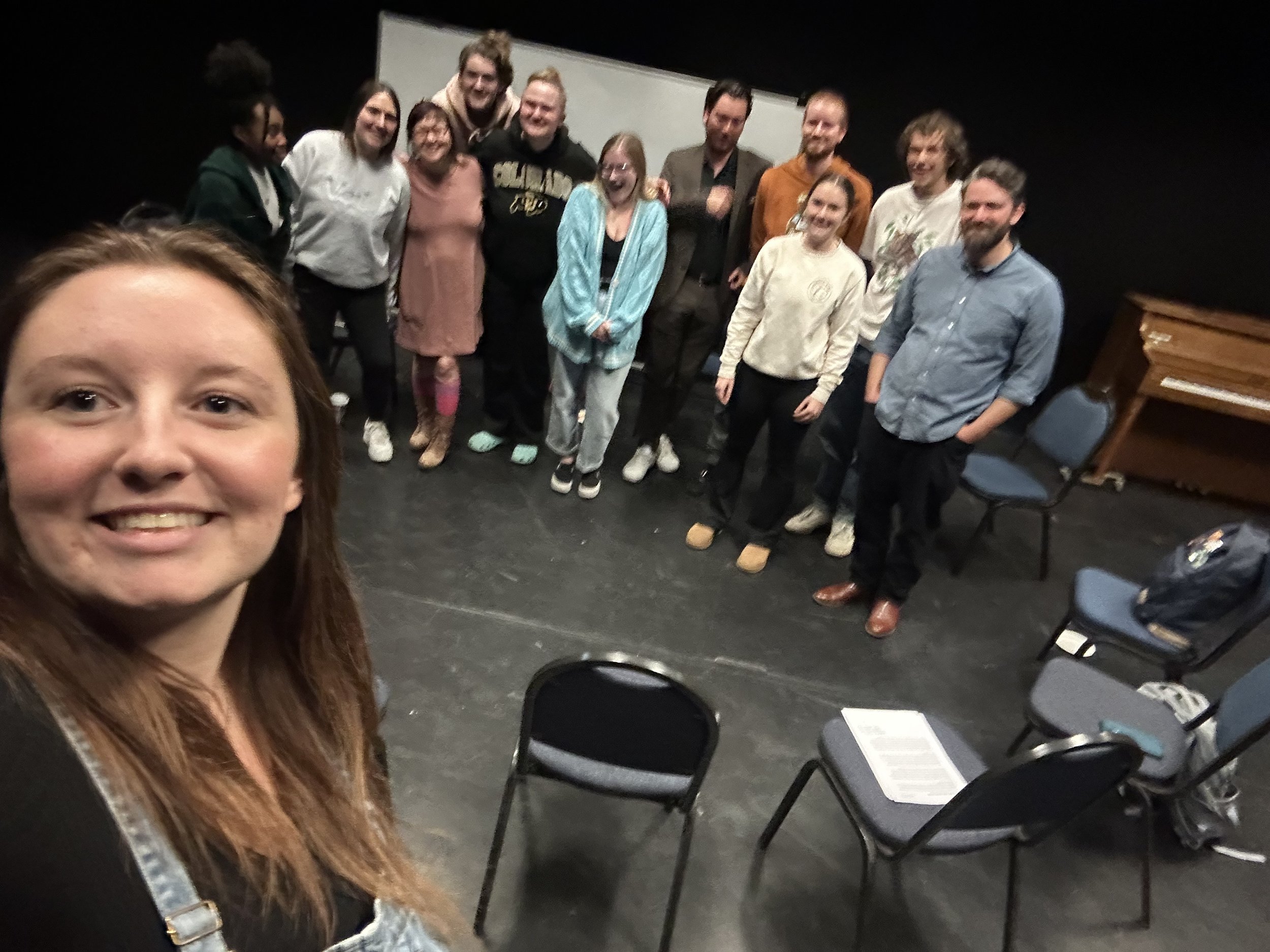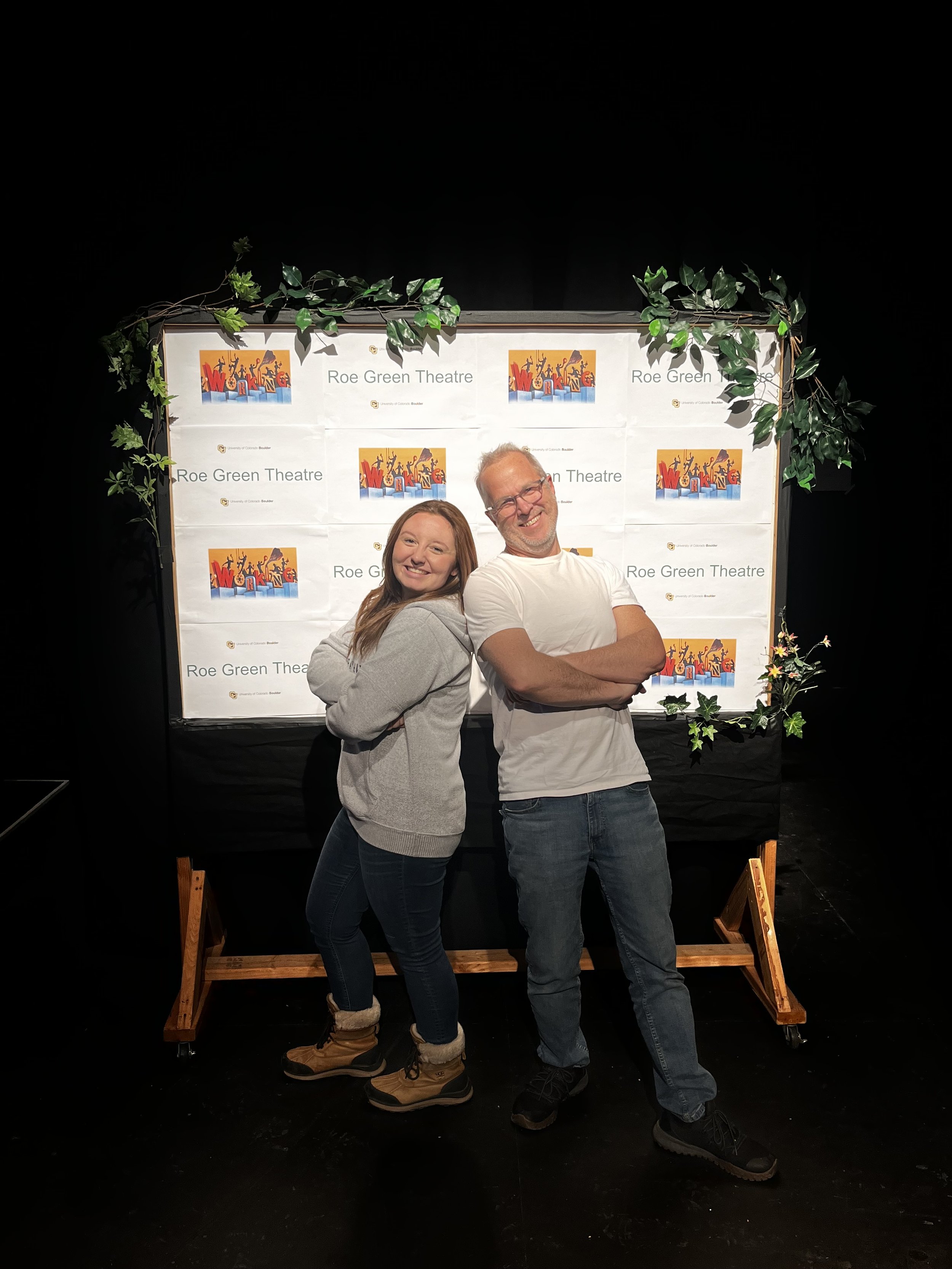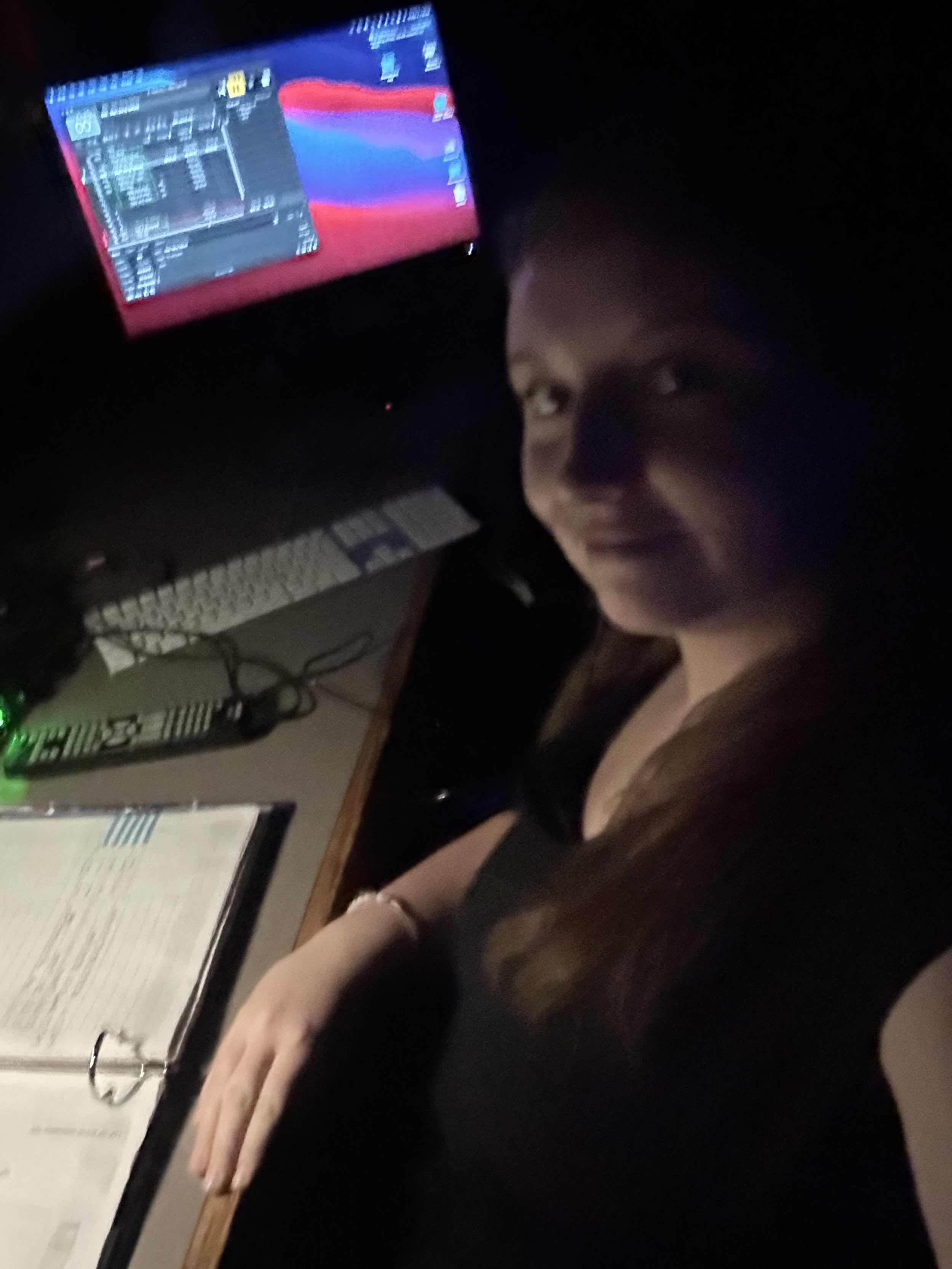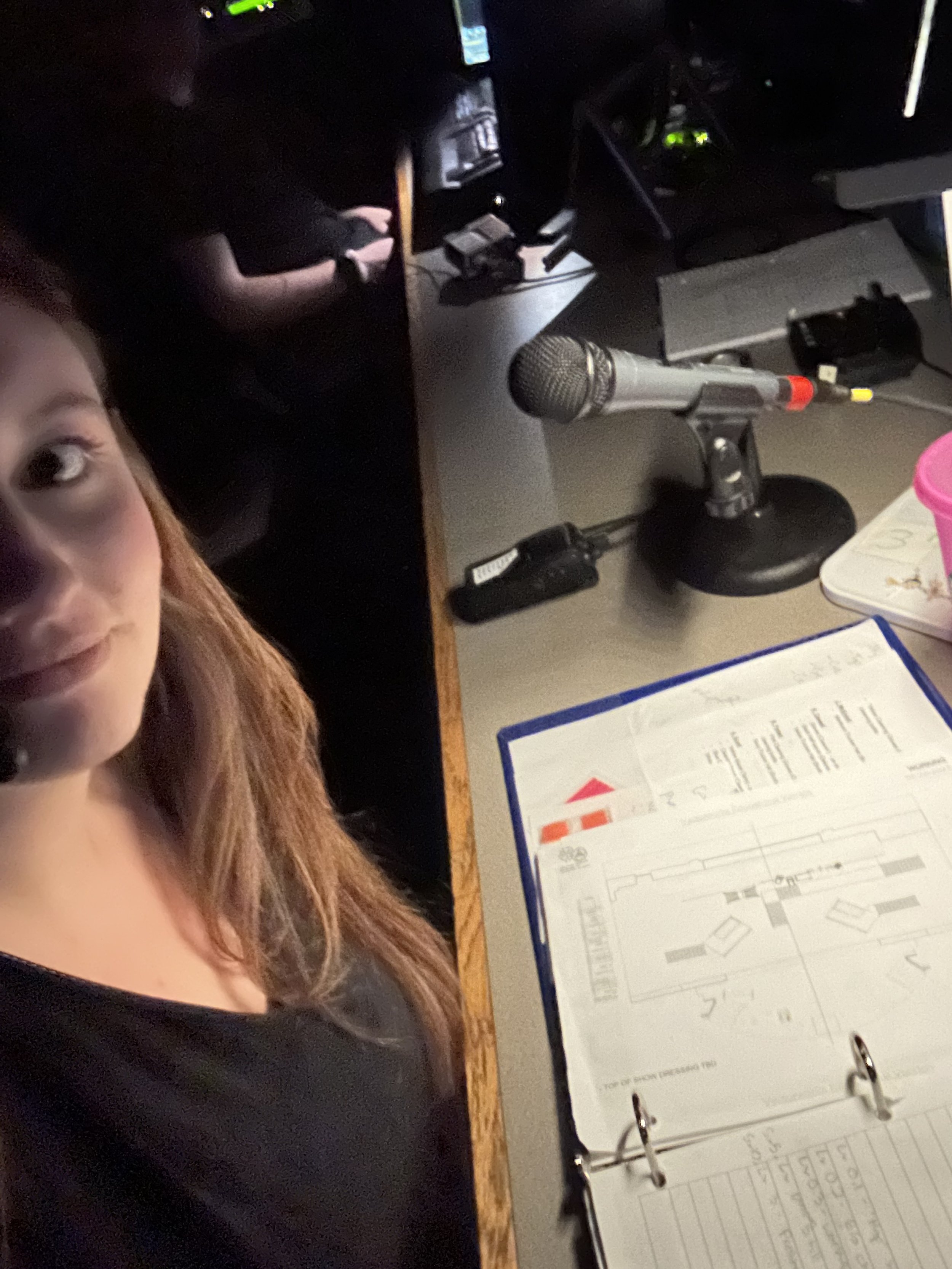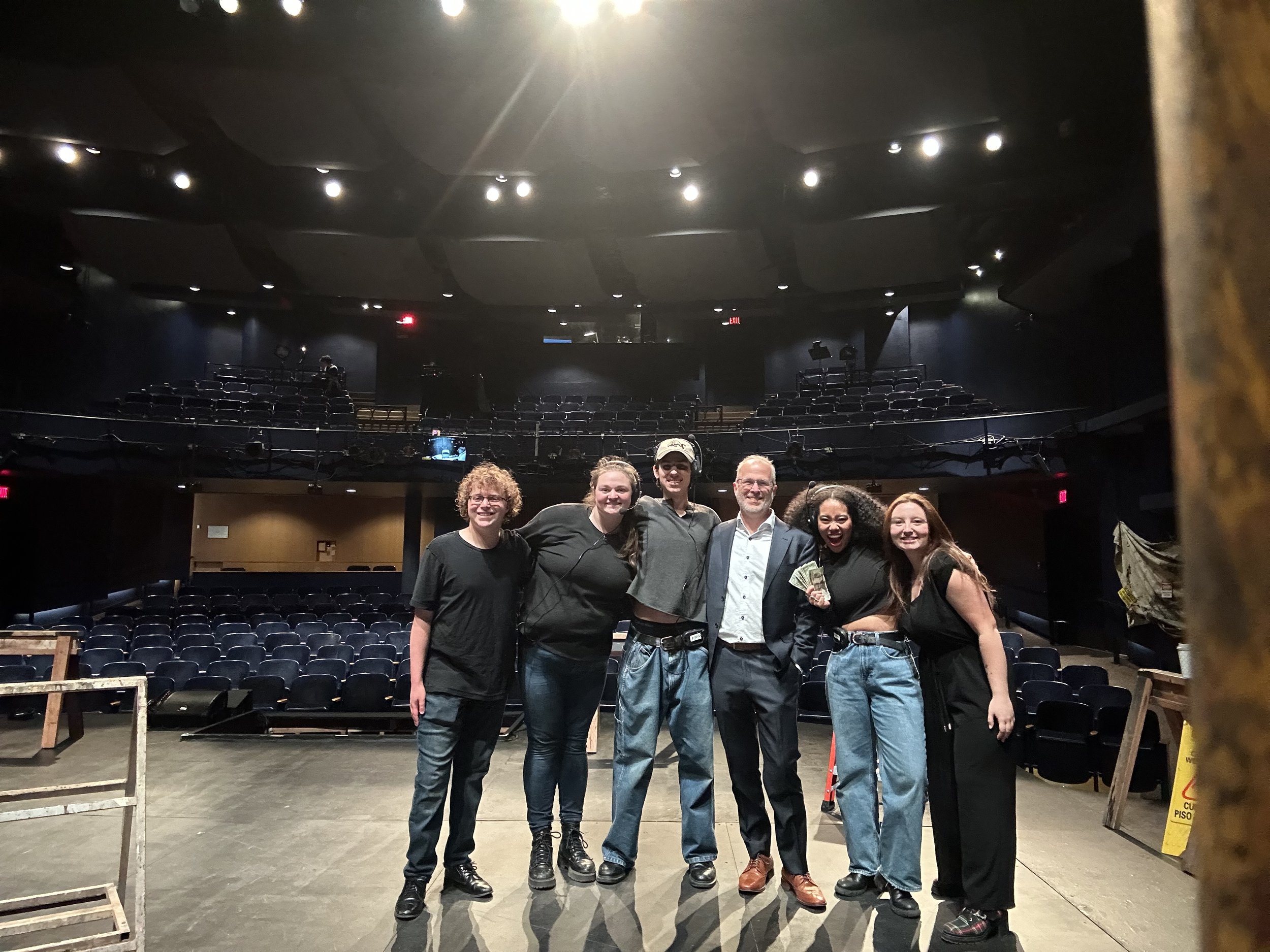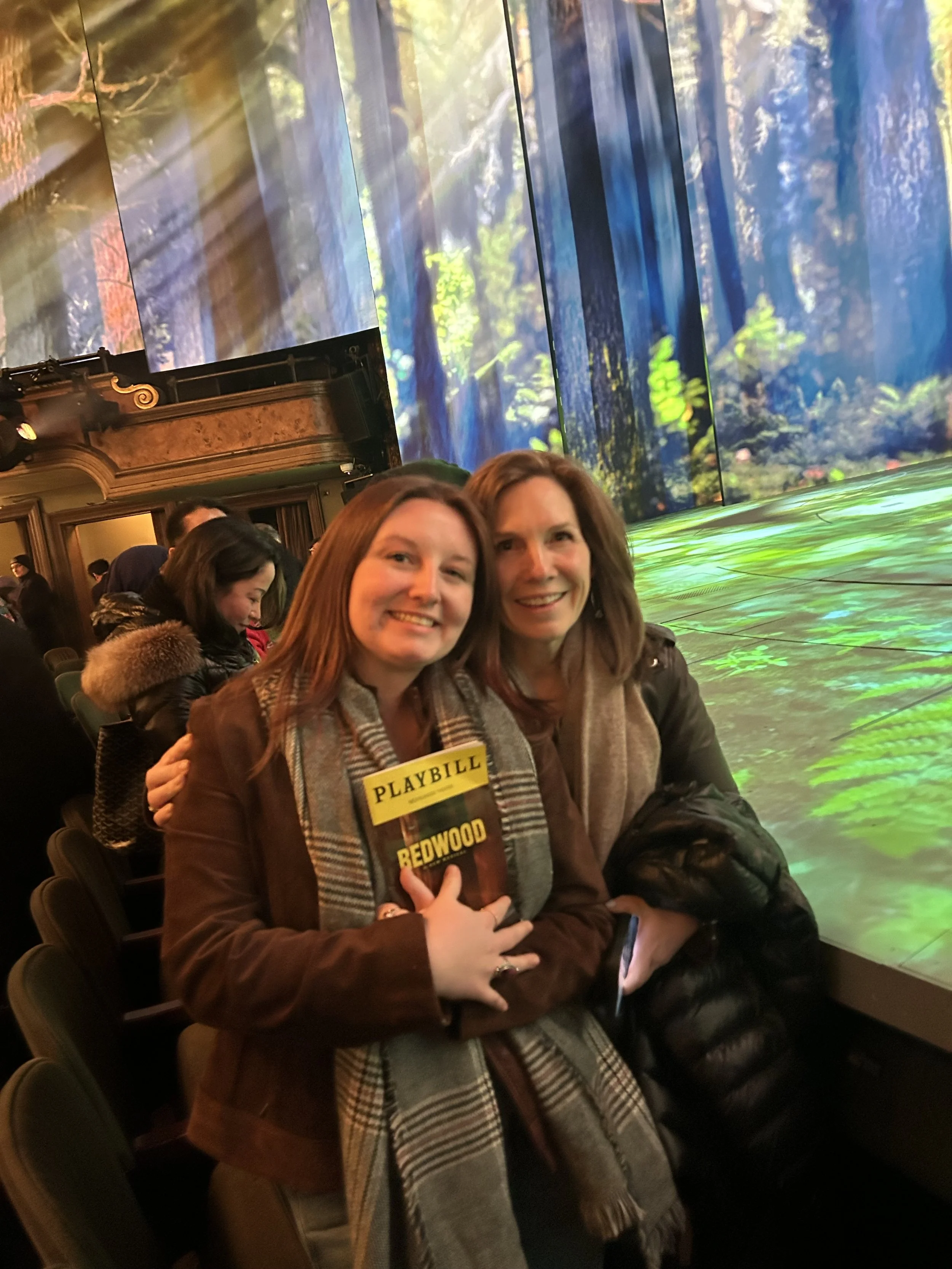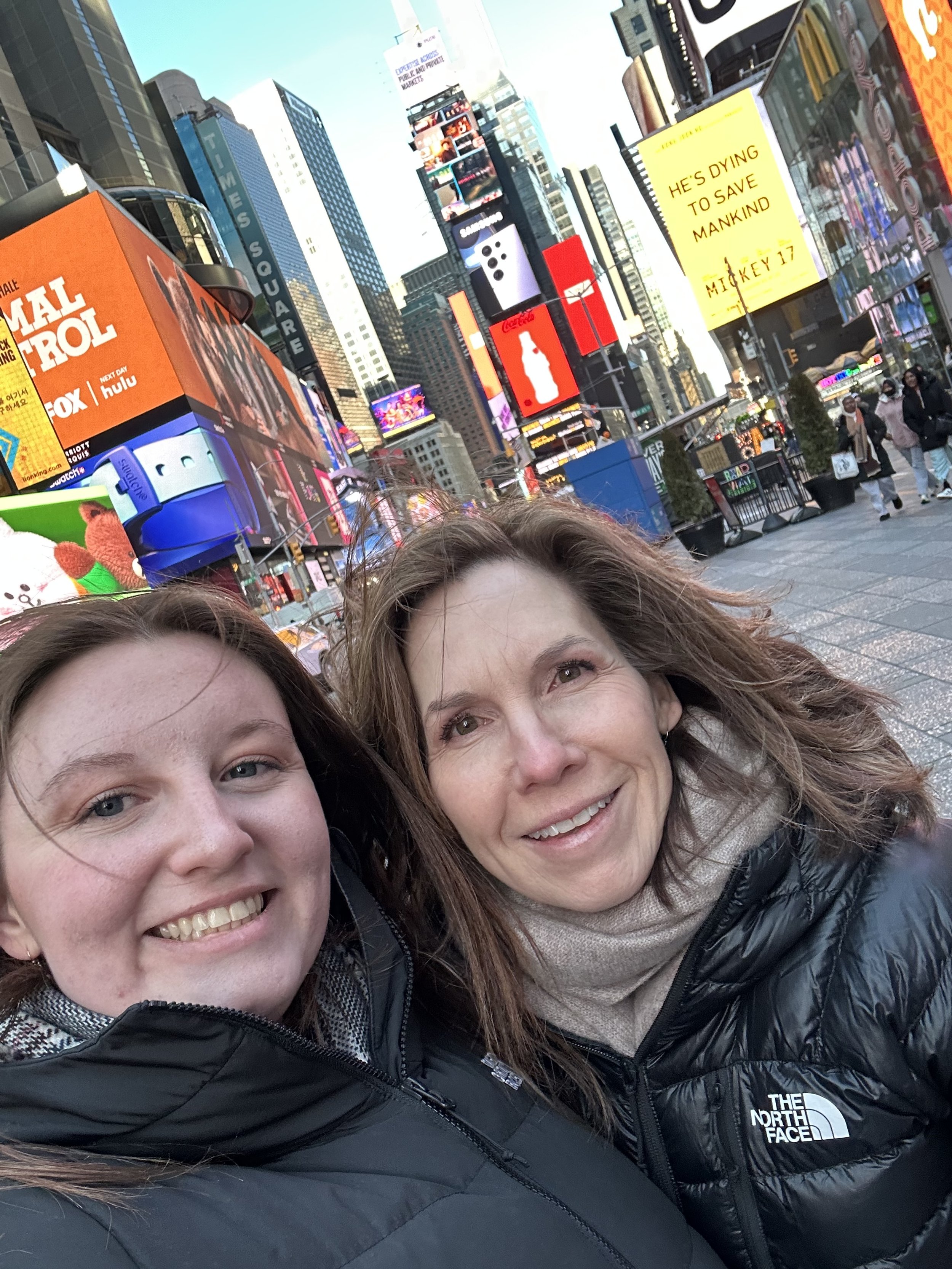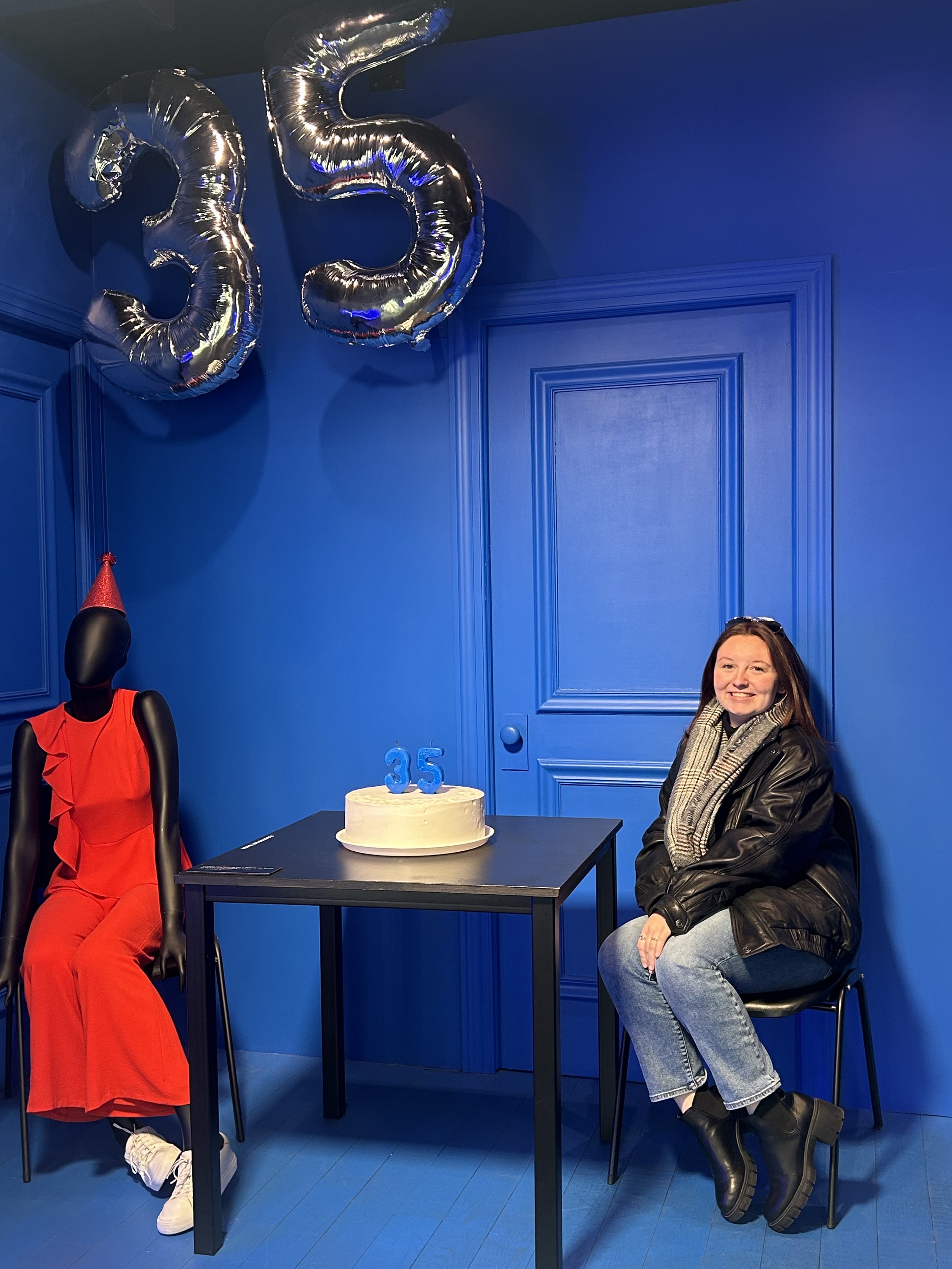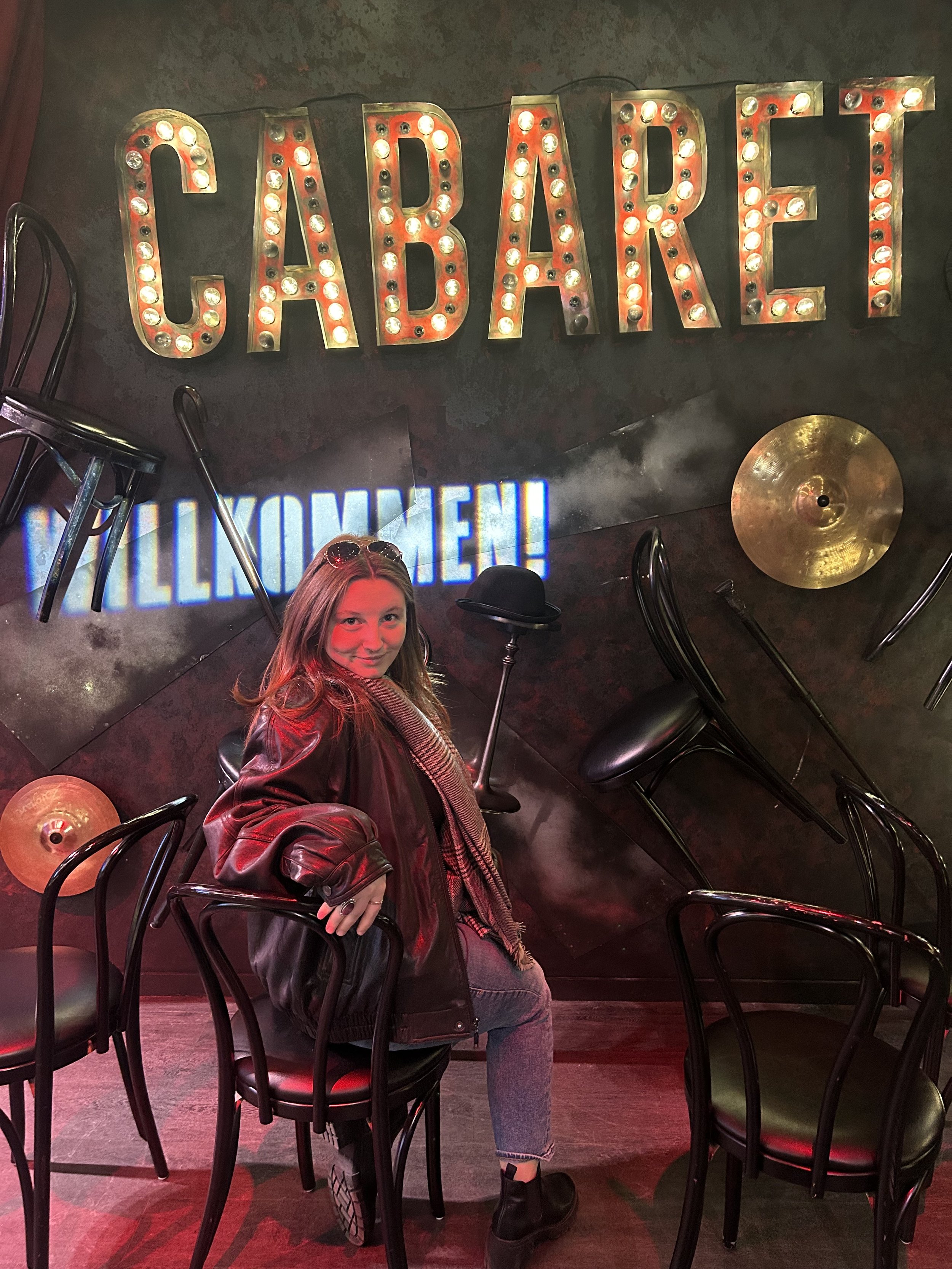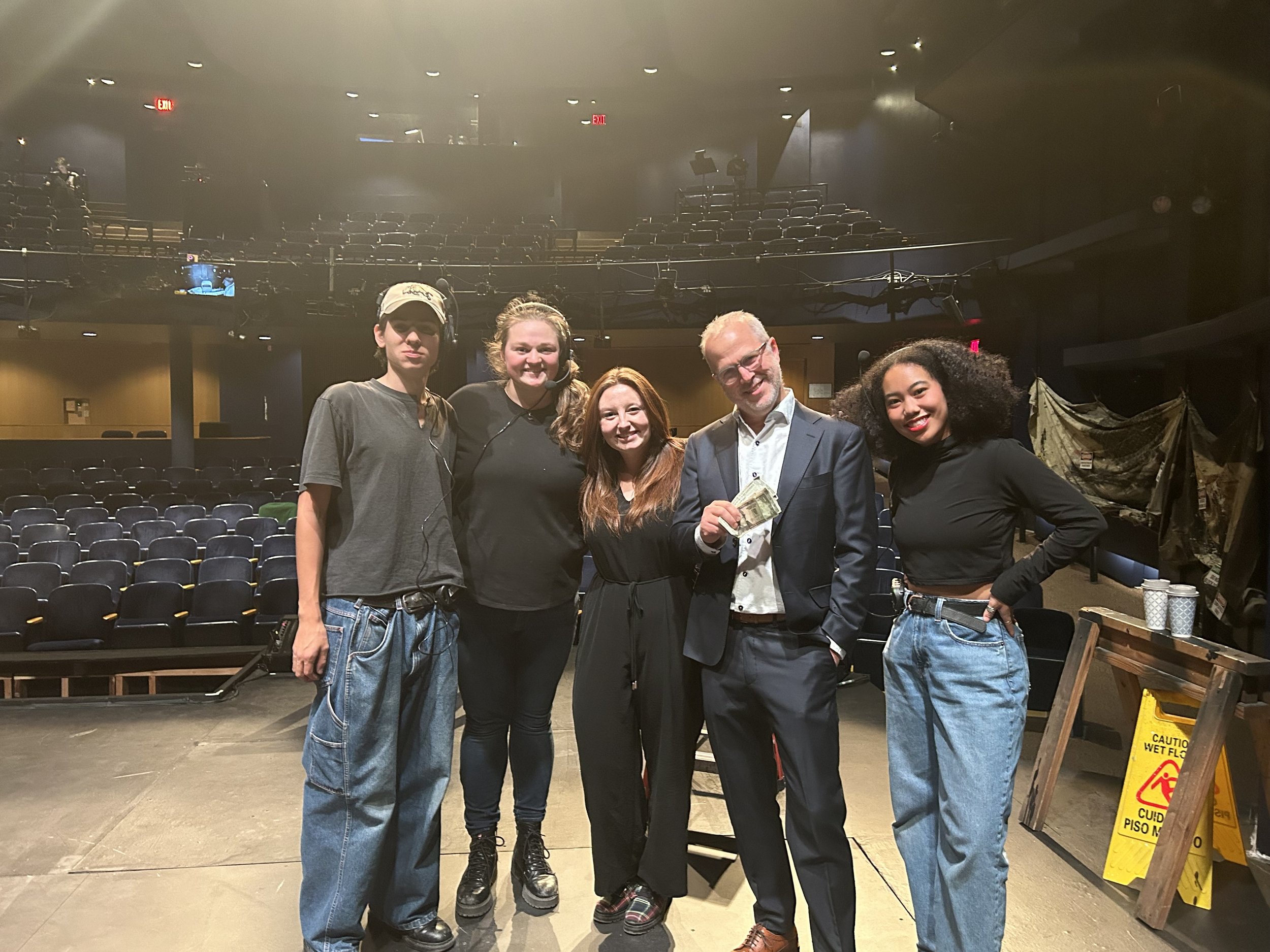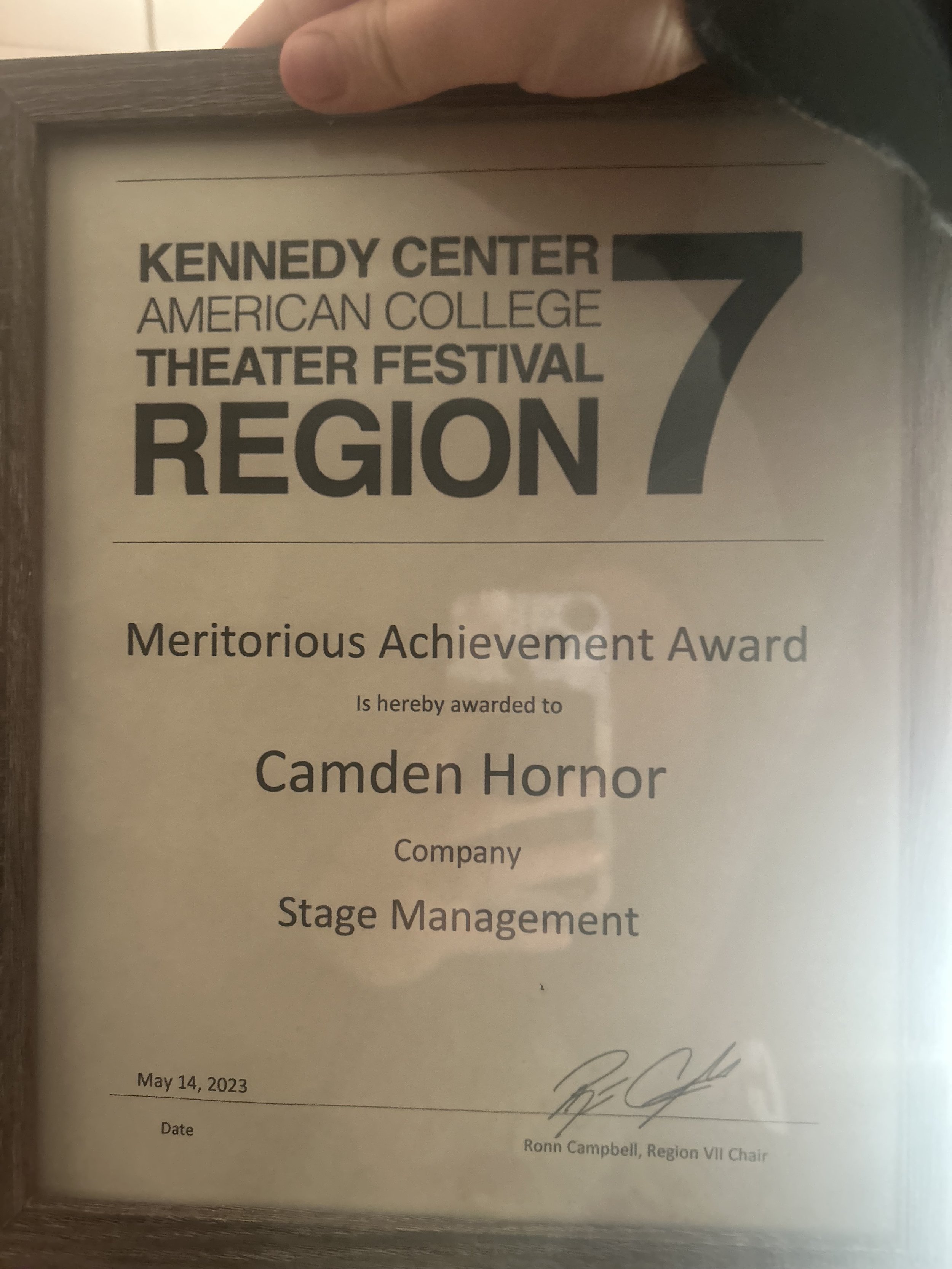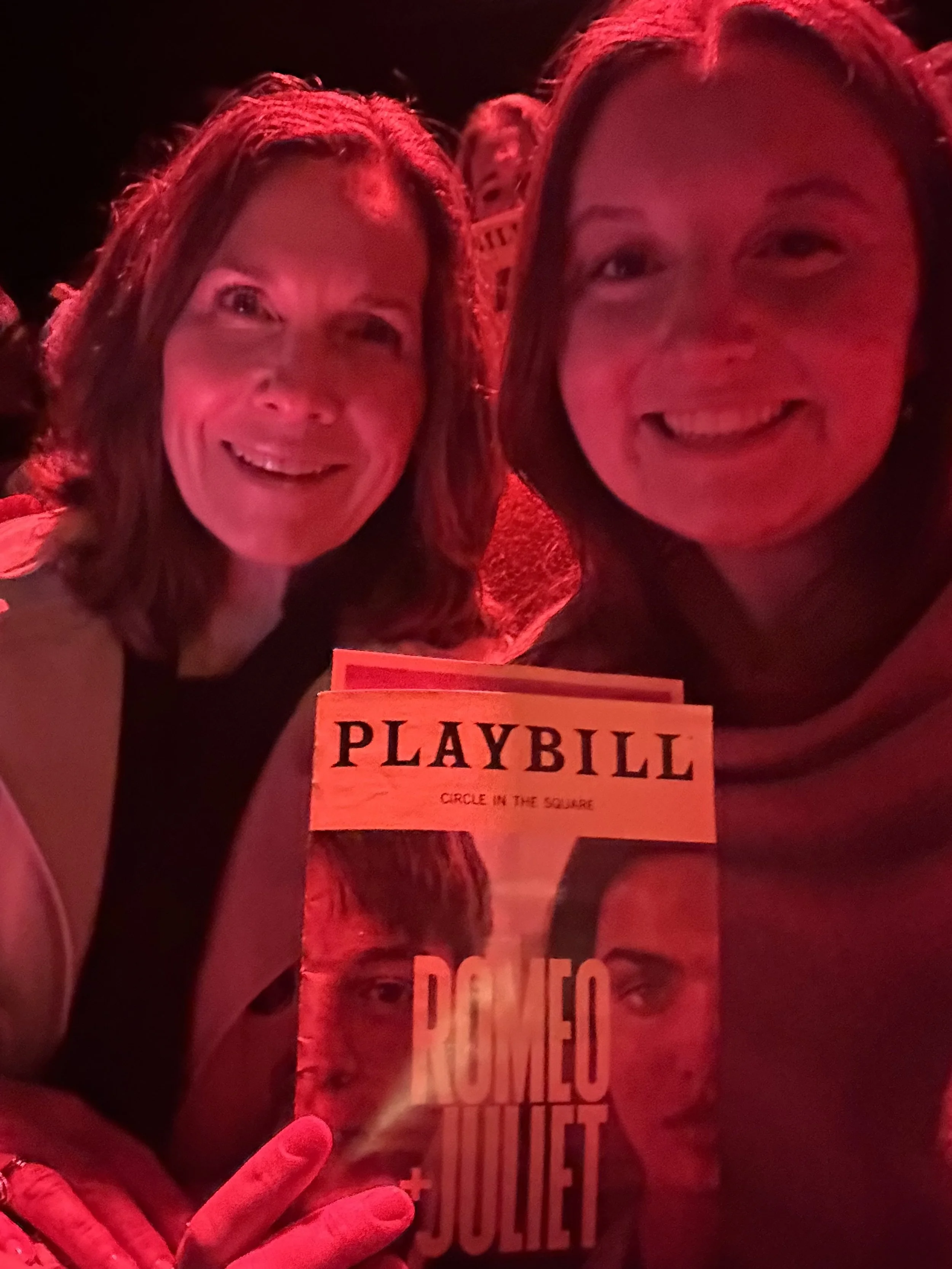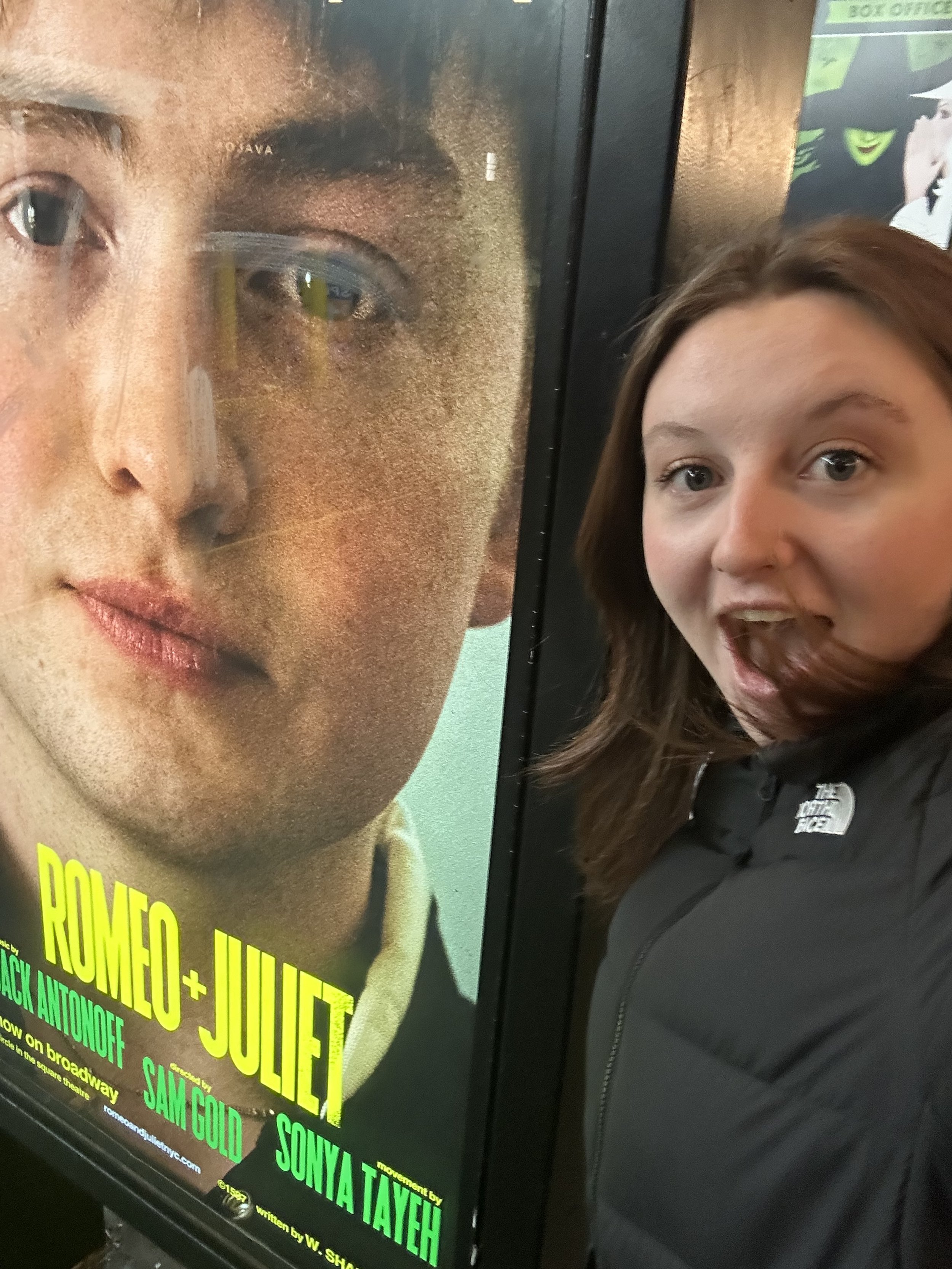As a stage manager based in CO, I am passionate about working with performance companies based in opera, musicals, and straight plays. Whether it's as an ASM, SM, or PSM, I am dedicated to bringing creativity and precision to every production.
My passion for the arts developed at a very young age. Music and art fill my soul and I want to surround myself with creative, talented individuals. I think what’s most important for stage management, beyond the drive and organizational skills, is a passion for the craft. My goal is to utilize my skills to create innovative, meaningful, and important pieces that enhance the human experience.
Meet Camden Hornor

Who am I as a Leader?
(Leadership Studies Minor)
-
The performing arts world is where I belong, stage management happens to be the aspect that I do well and allows be to be present in an environment that feeds my soul. One thing I found very quickly within this line of work is that stage management is an art in itself. To be a part of the creative process and assist in bringing a creative vision to life takes care and an understanding of why we do theatre. We help the world process what happens to it, inspires it, and creates it.
Completed Courses:
LEAD 1000(Introduction to leadership): The foundation course will prepare students to exercise leadership in business, government and community organizations. Introduces leadership skills useful in a variety of settings including community and civic activities. Helps students to improve self awareness, understand multiple theories, recognize moral courage, build analytic and critical thinking skills and adapt leadership practices to different people and contexts.
THTR 4085(Theatre Management): Students will learn how arts companies are run and managed, how non profit boards function and more. We will discuss budgeting, season planning, grant writing, unions, marketing and development. The class will include a wide range of guest speaker experts in the industry.
SSIR 1010(Innovating Sustainability): Engages students in understanding, through critical thinking, problem solving, and collaborative projects, how different change models, including social entrepreneurship, can lead to sustainable outcomes. Based on a combination of lectures, exams, group work, exercises, readings, in-class discussion and analysis, and speakers, students develop skills to work collaboratively on a problem-oriented topic and present project to public audience at semester end.
BUSM 3031(Business Leadership): This course is about leaders, leading and you. It is designed to help you think broadly about leadership and prepare you for leadership positions in a variety of careers. The course introduces management theories and how to apply them in the real world. We also engage in conversations about how generation shifts, technology changes, and recent economic and political trends influence the workplace. To translate theoretical concepts into practice, we use a mix of learning activities to ultimately provide useful guidelines for how best to lead throughout your career.
LEAD 4000(Leadership Capstone): Integrates leadership topics and experiences students pursued through the Leadership Studies Minor. Using advanced critical thinking skills, the seminar requires students to evidence their knowledge, competencies and skills related to leadership theory and practice through examining contemporary leadership challenges. Further, the seminar directs students to justify decision-making processes, demonstrating their ability to synthesize prior knowledge to effect desirable, ethical outcomes.
-
5 “aha” moments in Leadership
A boss is not necessarily a leader. These terms are different, but not mutually exclusive.
A leader is not inherently good or bad, a choice and effort must be made for a positive impact.
Being a leader means influencing change, big or small.
The leader in the room determines how everyone will experience it.
We are responsible for the impact that we make.
Bonus: Anyone can be a leader.
-
What I practice in leadership roles is what I have borrowed and learned from some of the smartest and most compassionate leaders I know. These leaders follow the Emergent Strategies(below). This is the idea that we control others’ experiences of the rooms that we lead. By following these strategies we can create a better room, a better space, and a better world. These values focus on forgiveness, allowing people to exist fully, and being present in every space. One specific leader I will always remember is Betty Hart. She taught me how to dismantle power and white supremacy in a room and how people bring in better energy when you don’t create a hierarchy, you create a team where every person does their part. It is our misguided values in a culture where productivity and efficiency are valued above all else, that creates toxic and competitive spaces. Especially in artistic spaces this ideology is unwanted and poorly received. What is always welcome and wanted, is compassion, understanding and creativity. This is what I practice as a leader. Below are the Emergent Strategies and the book by Adrienne Marie Brown. This practice is what will follow me as a leader and remind me that it’s everyone’s first time living, so we should handle everyone with care.
“Small is good, small is all. (The large is a reflection of the small.)”
“Change is constant. (Be like water.)”
“There is always enough time for the right work.”
“There is a conversation in the room that only these people at this moment can have. Find it.”
“Never a failure, always a lesson.”
“Trust the People. (If you trust the people, they become trustworthy.)”
“Move at the speed of trust. Focus on critical connections more than critical mass — build the resilience by building the relationships.”
“Less prep, more presence.”
“What you pay attention to grows.”
-Book by Adrienne Marie Brown, Emergent Strategy: Shaping Change, Changing Worlds
https://www.concentricstrategy.org/post/principles-of-emergent-strategy
-
A leader is a person that influences change. Someone who shifts the minds and perspectives of those around them to move closer to an ultimate goal. A leader inspires change and is at the forefront of causing it.
A good leader is focused on a common good, a goal that will positively effect the world of a specific group of people. A good leader is someone who works to improve the lives of the people they think need help. They create change through attempting to solve or ease problems they see in the world.
A great leader is more. A great leader is one who not only wants to improve the lives of a specific group of people, but the lives of everyone. They focus on compassion and empathy for those they help and others who are trying to help. A great leader understands that the world is imperfect and what they are striving for is to be better. They see the world as a project in progress, constantly able to change and improve for the good of the whole. A great leader leaves no one behind and will always offer support or a helping hand. A great leader exudes not always positive energy, but positive impact. A great leader has a vision for a better world and operates in the belief that achieving said world is possible.
I aspire to be a great leader. I believe that within the arts we can make real change; within our own spaces and in the world. We specifically use the power of empathy in our industry and I think it is one of our most powerful tools. We have the ability not only to tell people to do better, but show them what’s possible on the stage. It is empathy that will save the world.
-
Following the completion of this minor and my degree at CU, I will continue as a student of leadership by continuing to be a student of the world and those around me. I will stay true to who I am by being a constant observer of the human condition and human behavior. I observe every interaction and evaluate how small changes in action change reactions. I observe people I believe in and look up to as leaders to understand how they interact with the world and how they change the world. I have come to understand that people are imperfect and it is those that remain students of life that achieve the most evolved and illuminated states of being. I will also continue to research and educate myself on emerging theories of leadership throughout the growth of my career.
We are all temporary in the world, but it is the leaders who create a lasting impact and leave their mark on the world, leaving it better than when they entered it. I understand now how much of an impact one person can make on every person they cross paths with.
In terms of the WICKED problems(The world problems that can’t be solved and the main focus of LEAD 4000), I will strive to express positive impact in the world that I present in the performing arts. I will also bring the action items that I have come to understand into the spaces that I run and create. I believe that I can make an impact on who is represented on stage and how they are represented. I can also use my voice to encourage audiences to take action following their immersion into the worlds I help create. I will work to dismantle power and ensure that everyone’s voice is heard to the best of my ability as a leader.
-
-Book by Adrienne Marie Brown, Emergent Strategy: Shaping Change, Changing Worlds
https://www.concentricstrategy.org/post/principles-of-emergent-strategy
LEAD 1000, Introduction to Leadership, Professor Ben Kirshner, University of Colorado Boulder Fall 2024
LEAD 4000, Leadership Studies Capstone, Professor Elaina Verveer, University of Colorado Boulder Spring 2025
Hart, Betty, “personal communication”, Actor, Director, Facilitator, President of Colorado Theatre Guild. 2024-2025
Awards and Recognition
KCACTF Stage Management Merit Award
Company ~ ASM ~ Fall 2023
KCACTF Stage Management Merit Award
Working: A Musical ~ SM ~ Spring 2023
